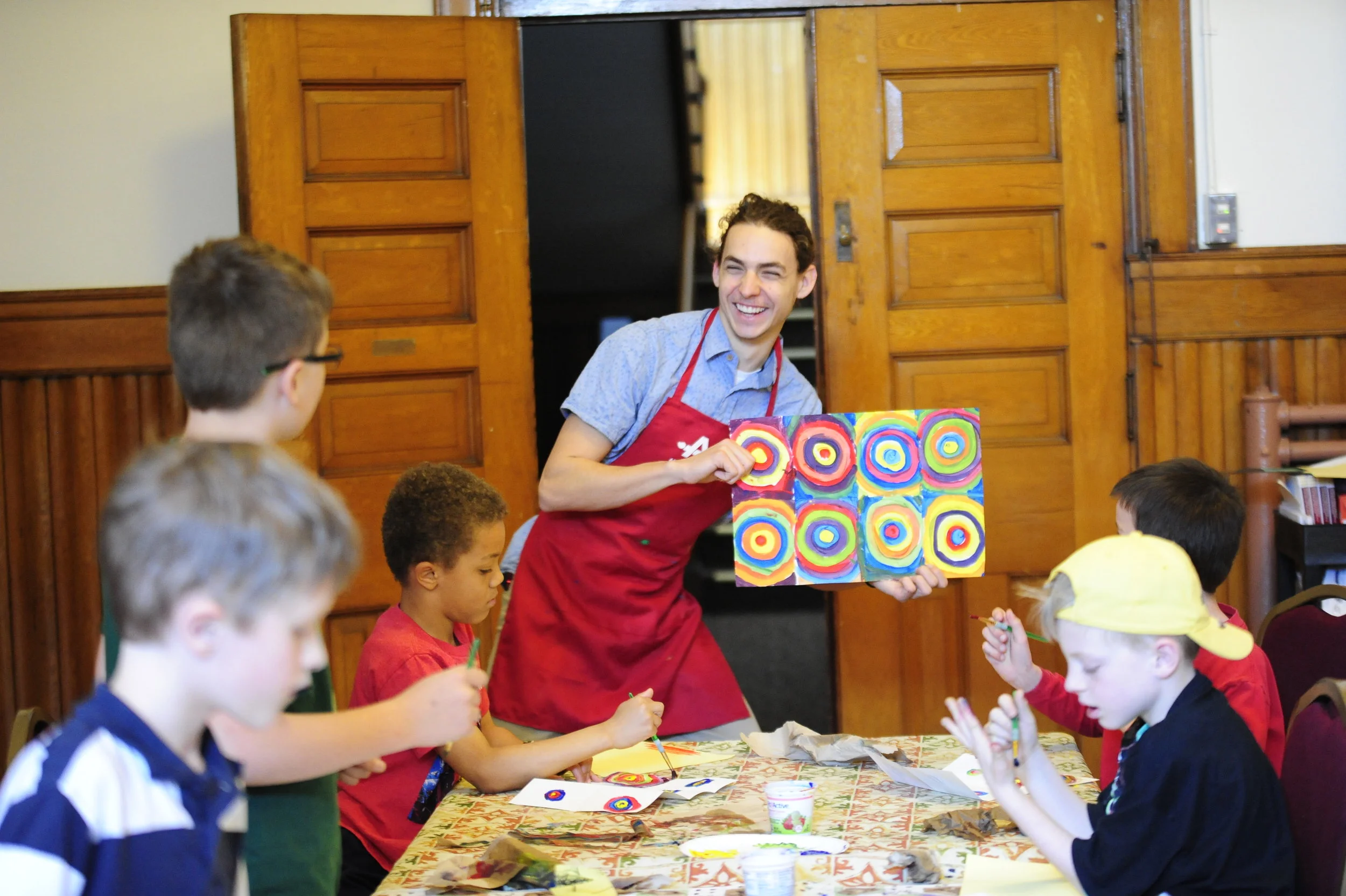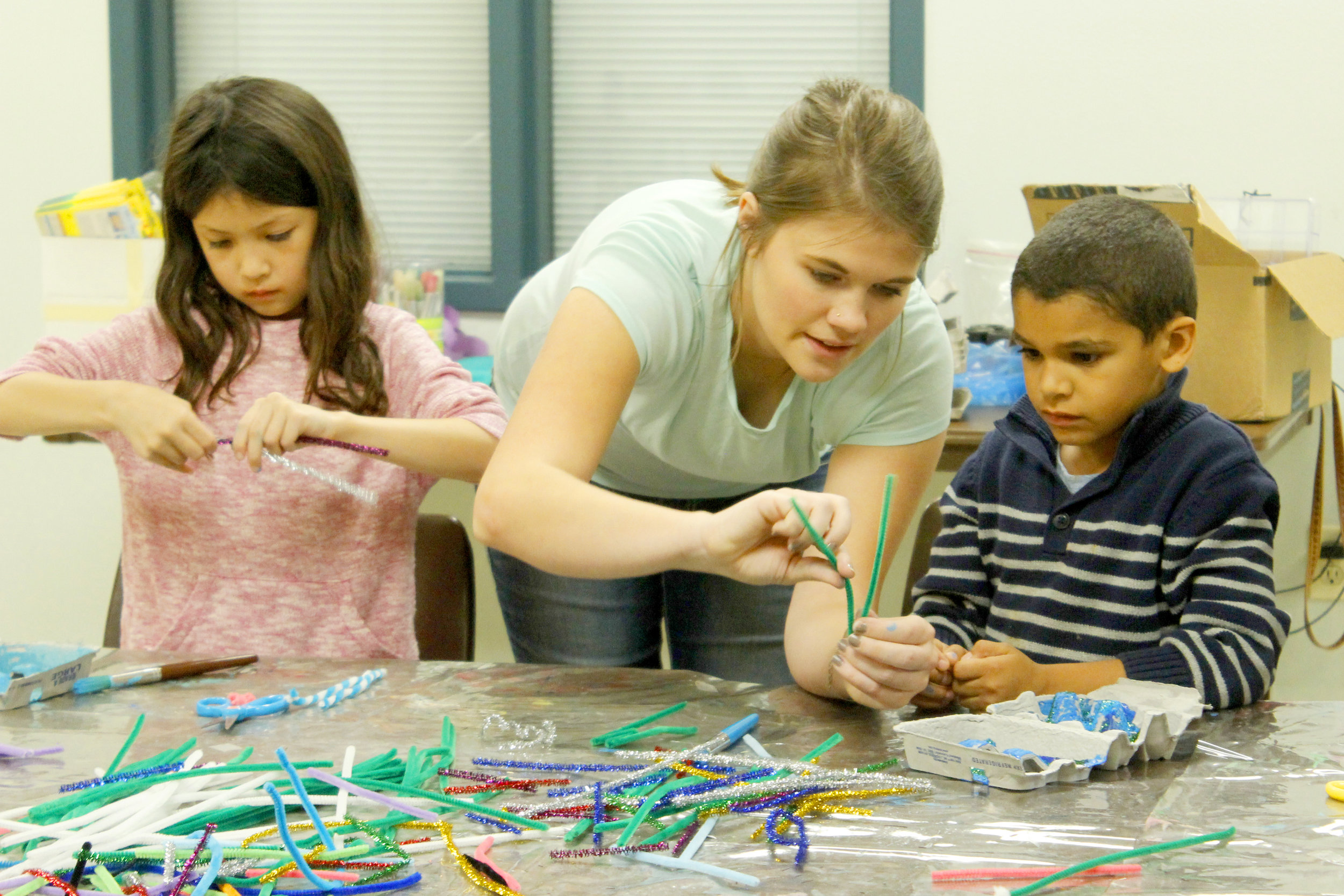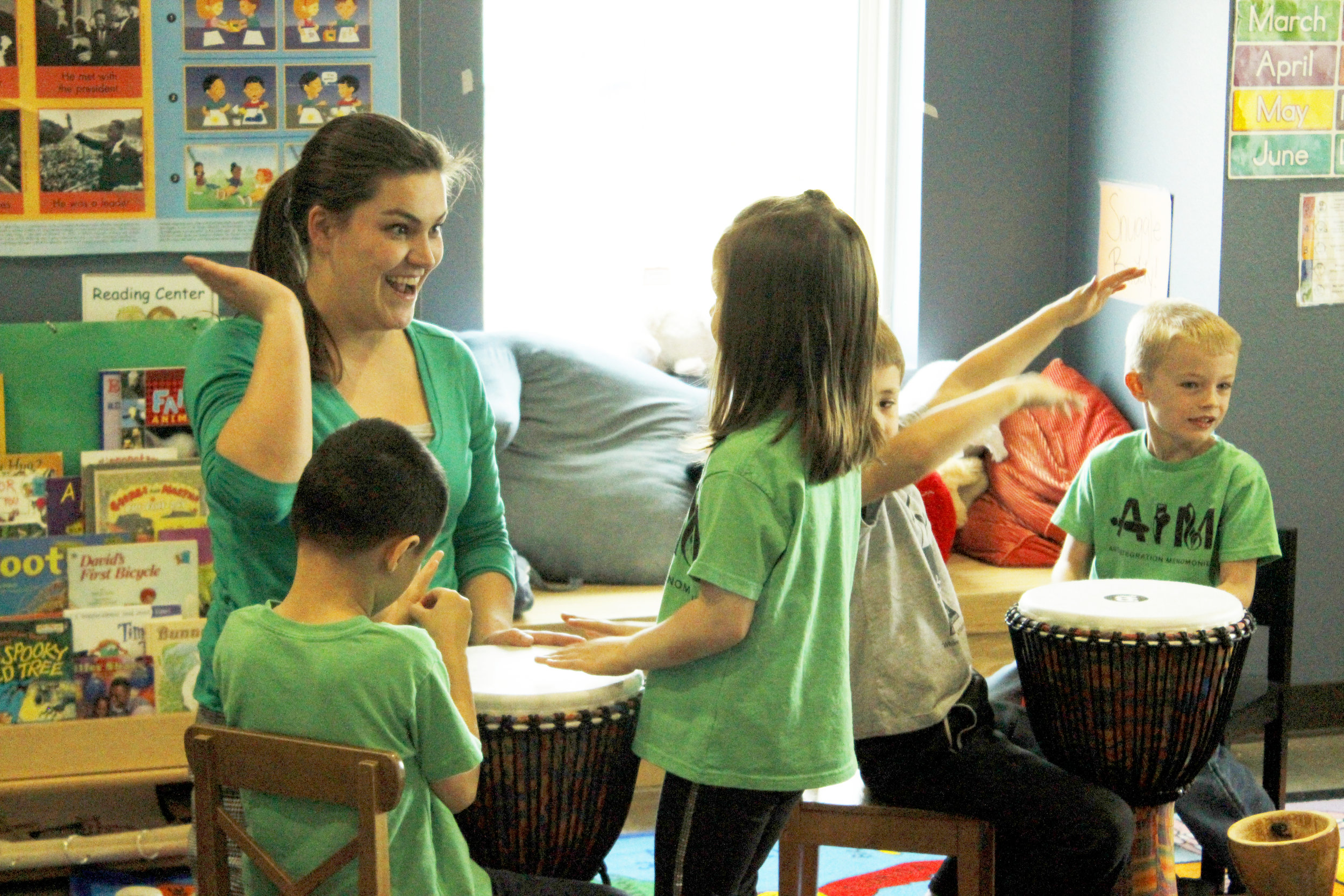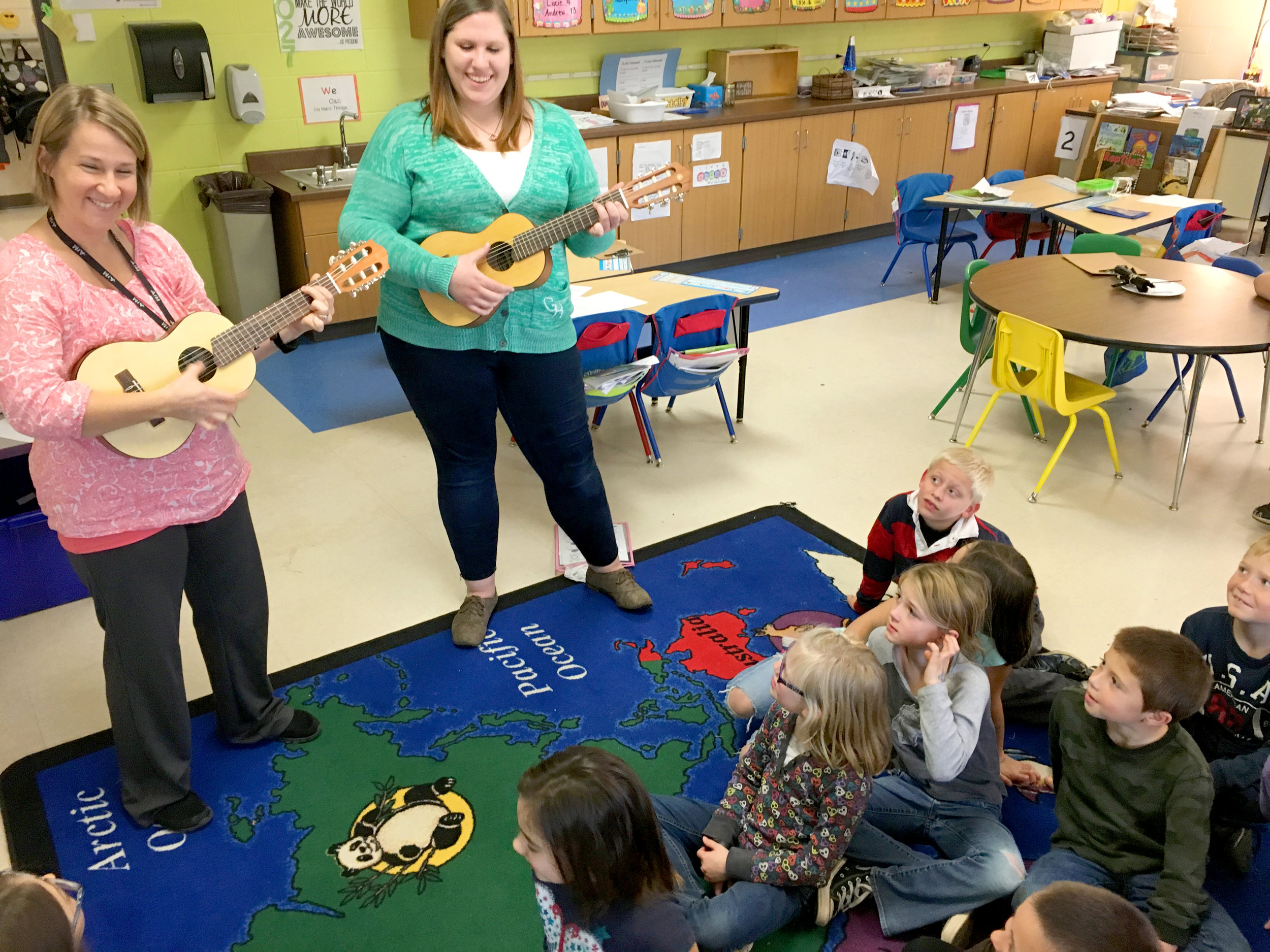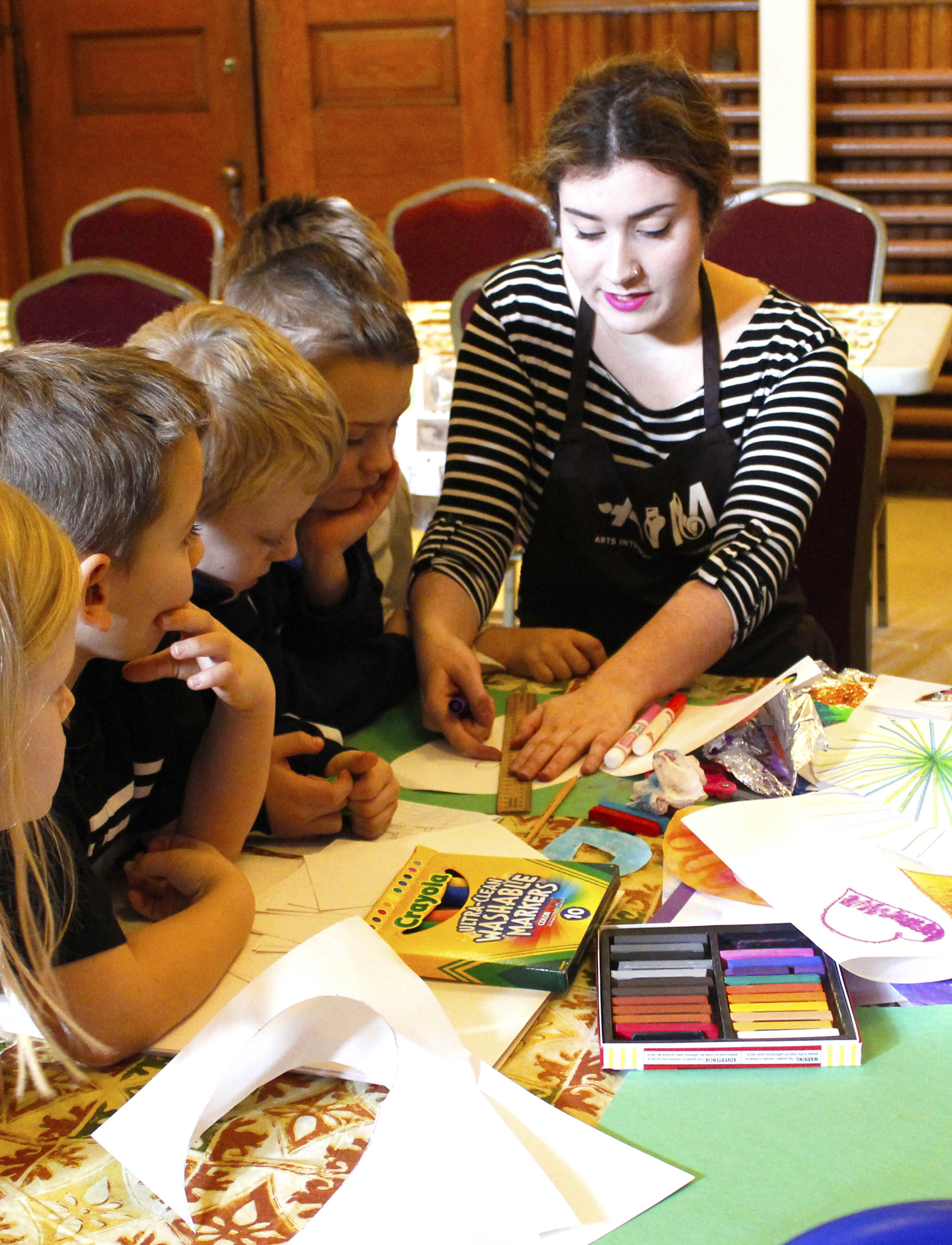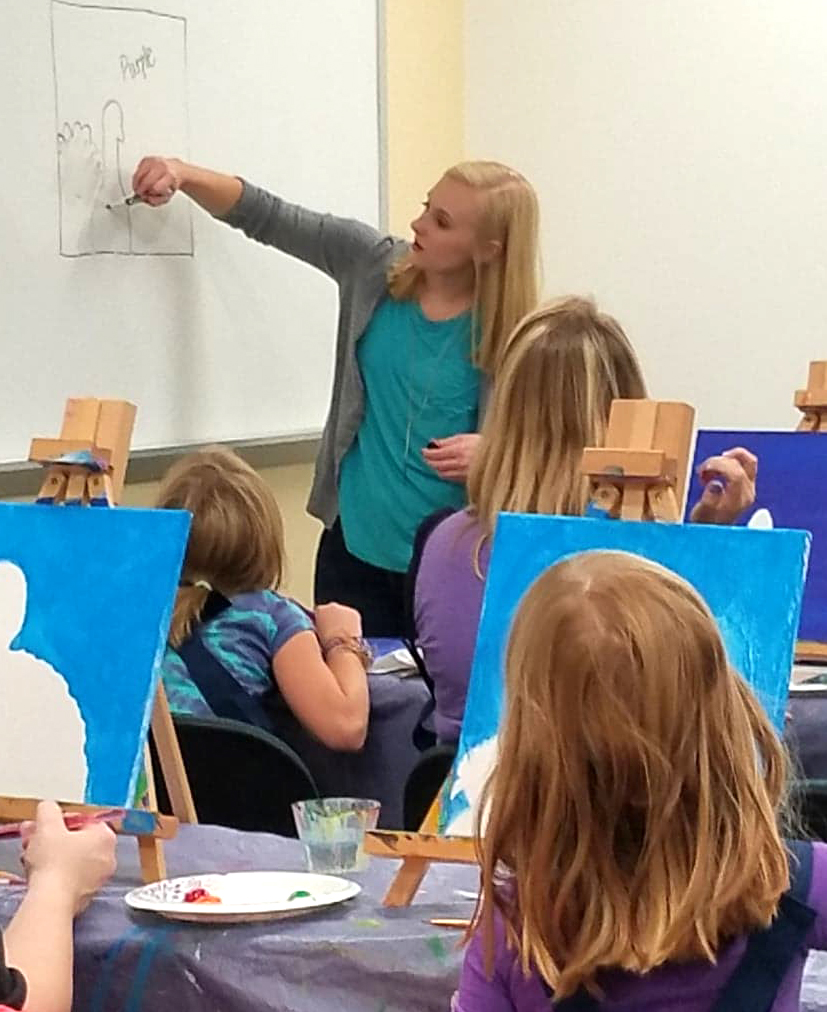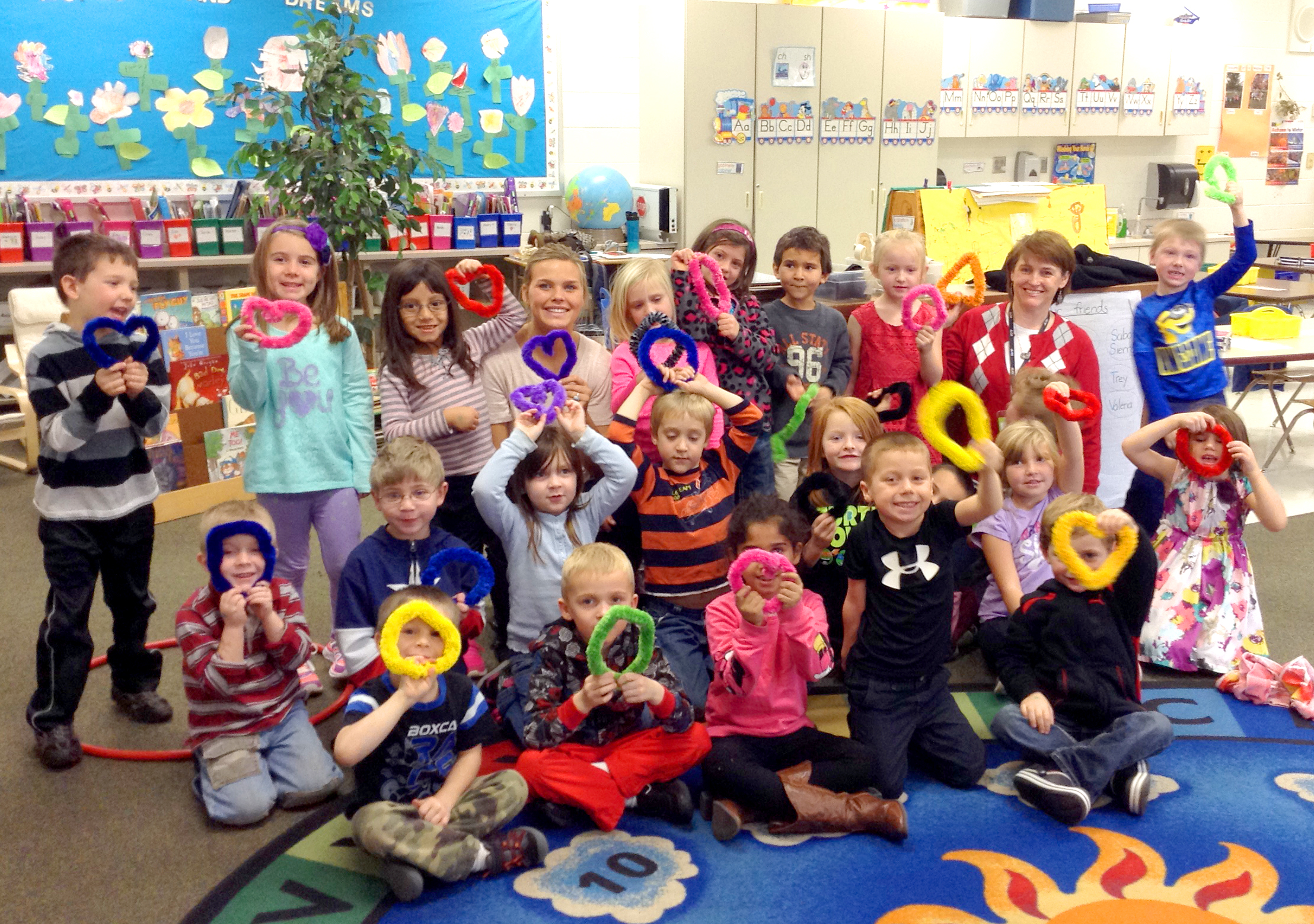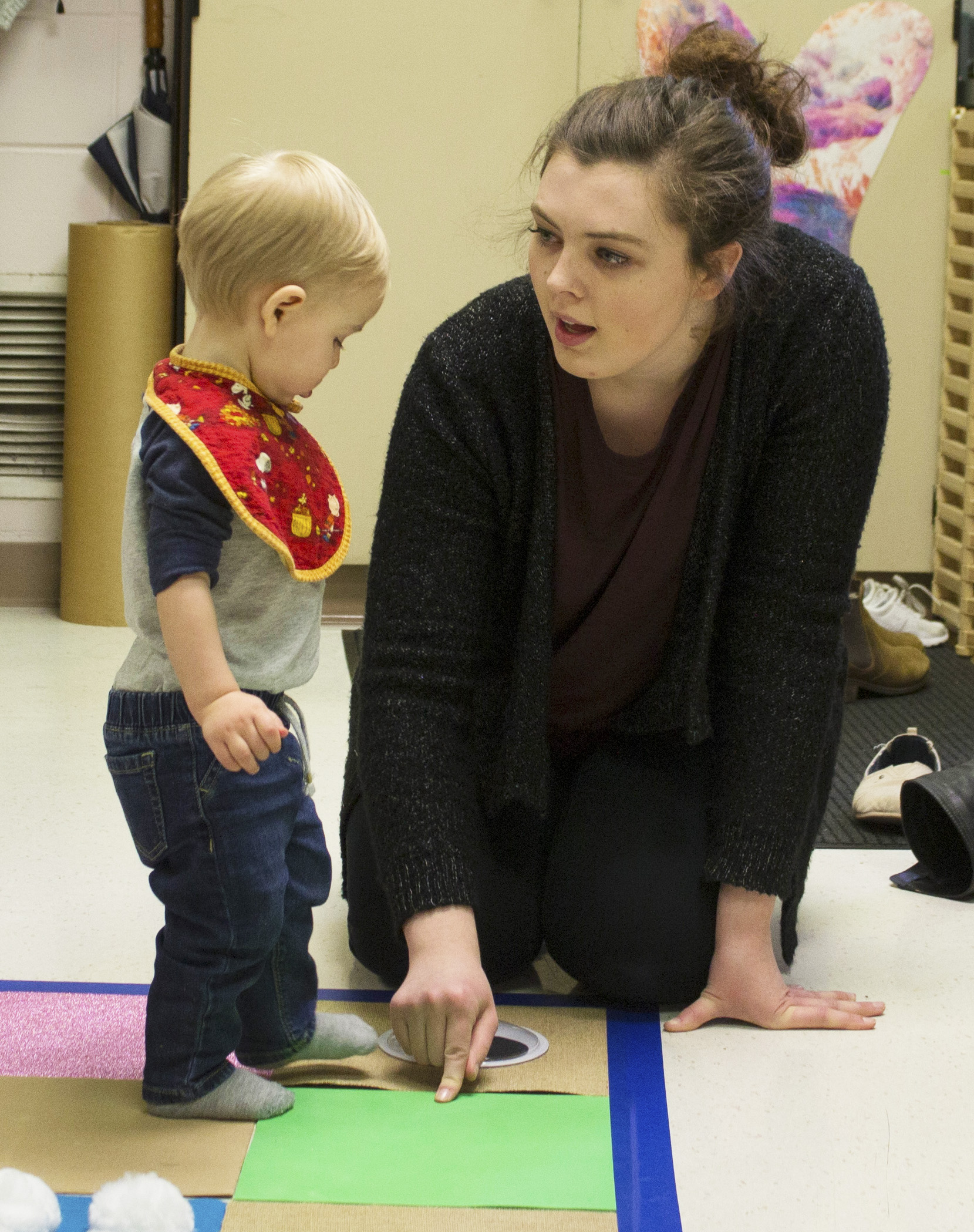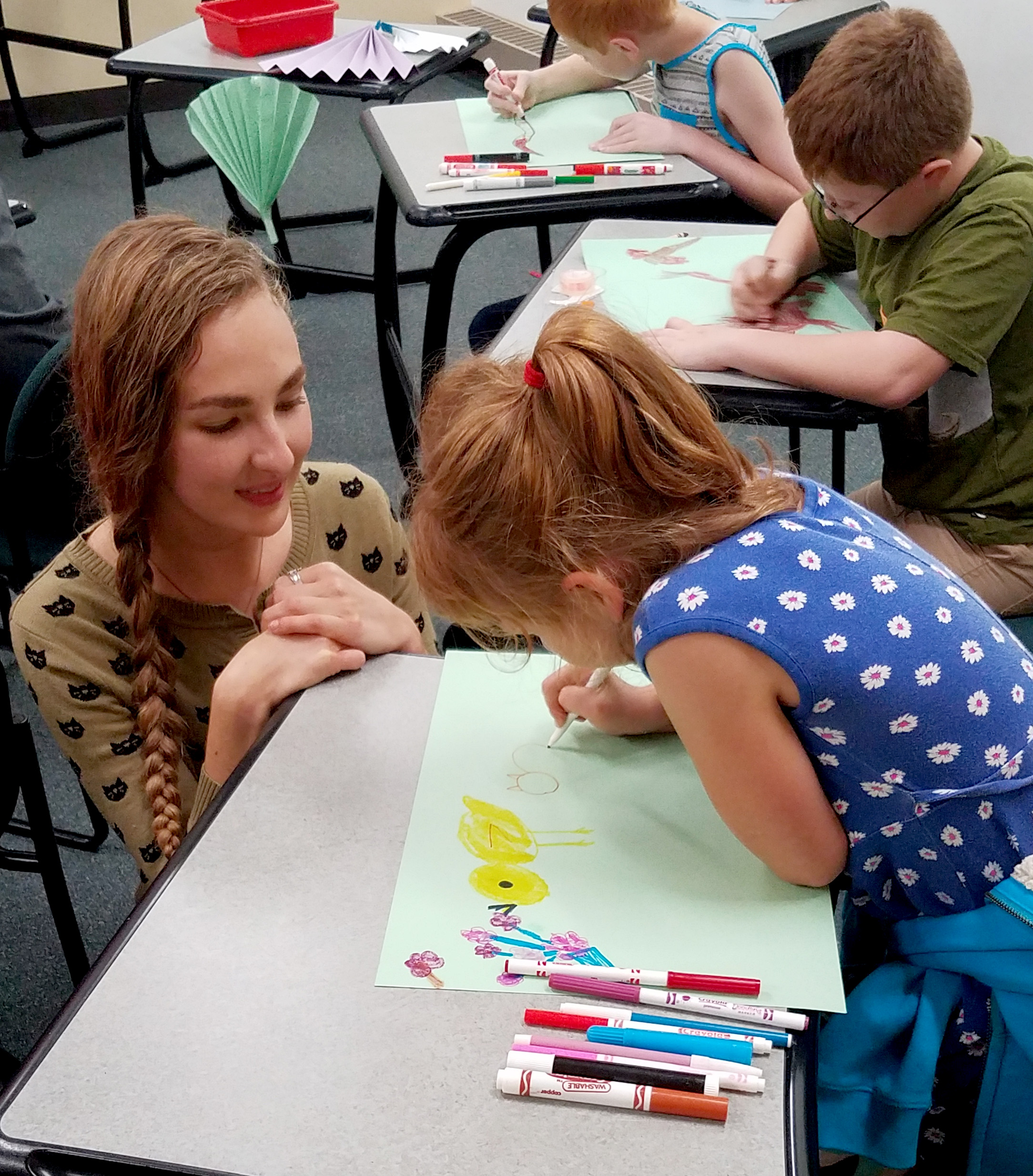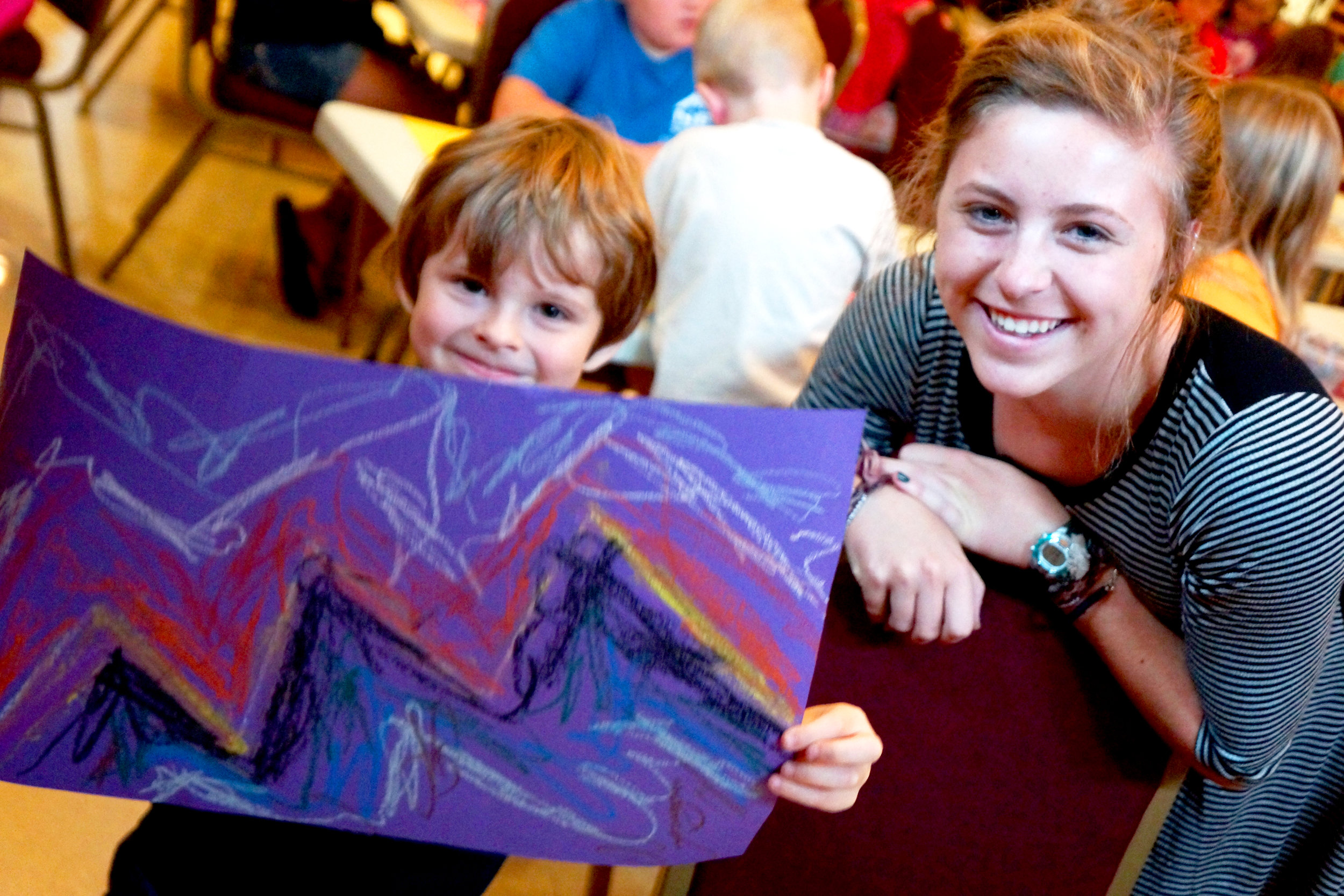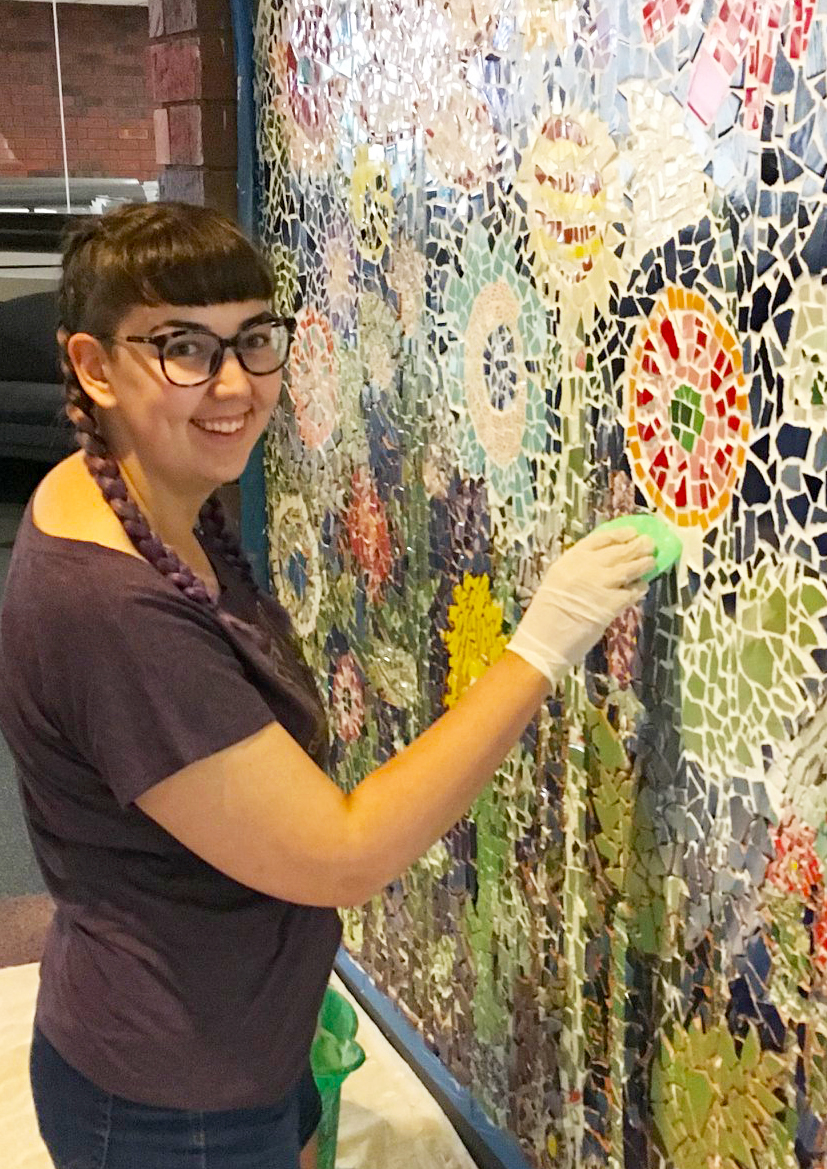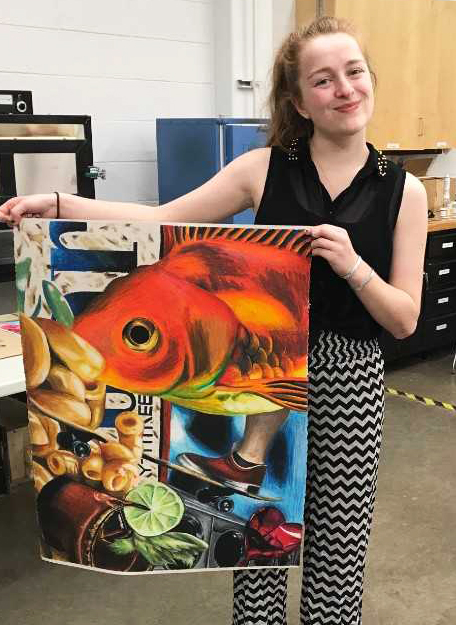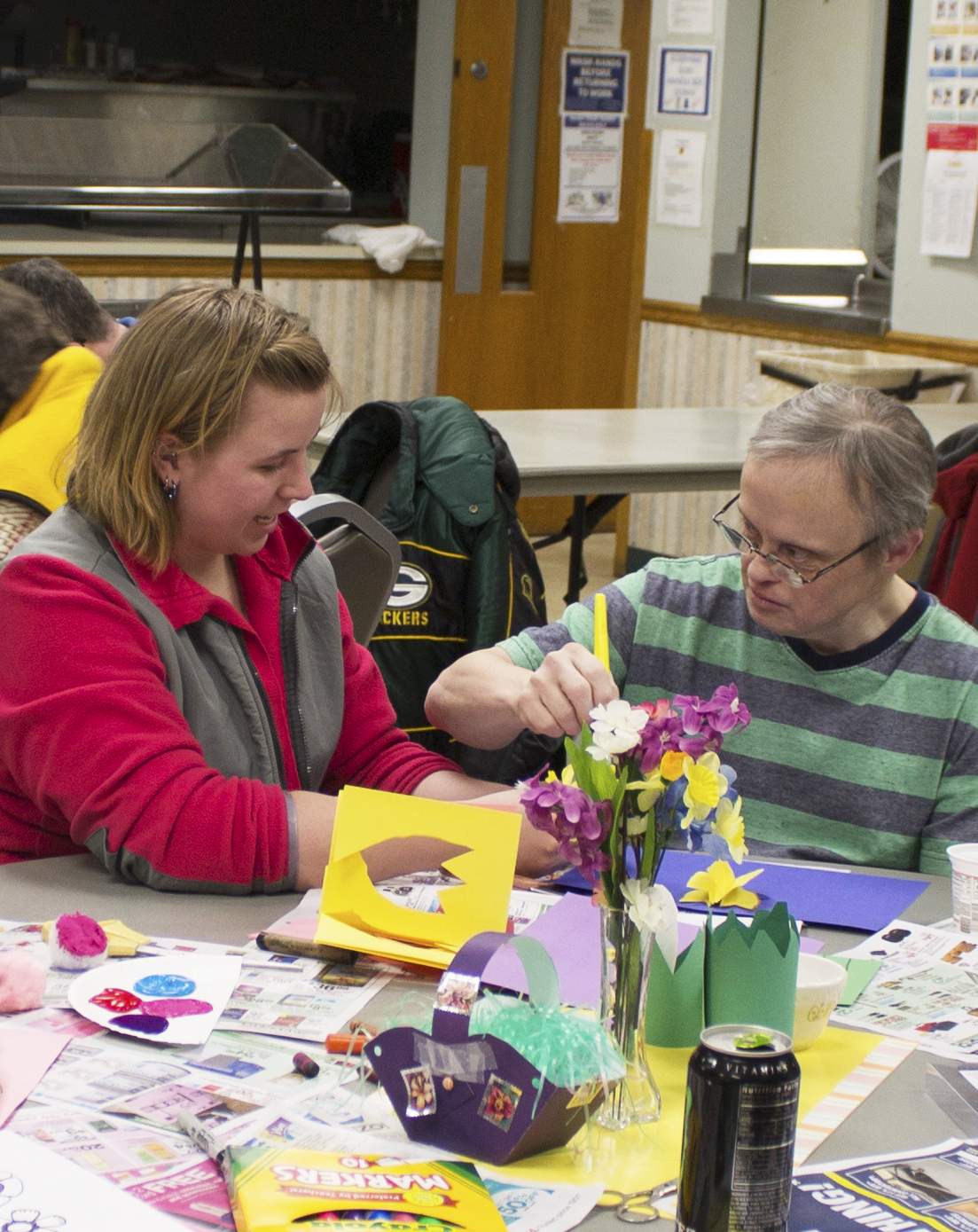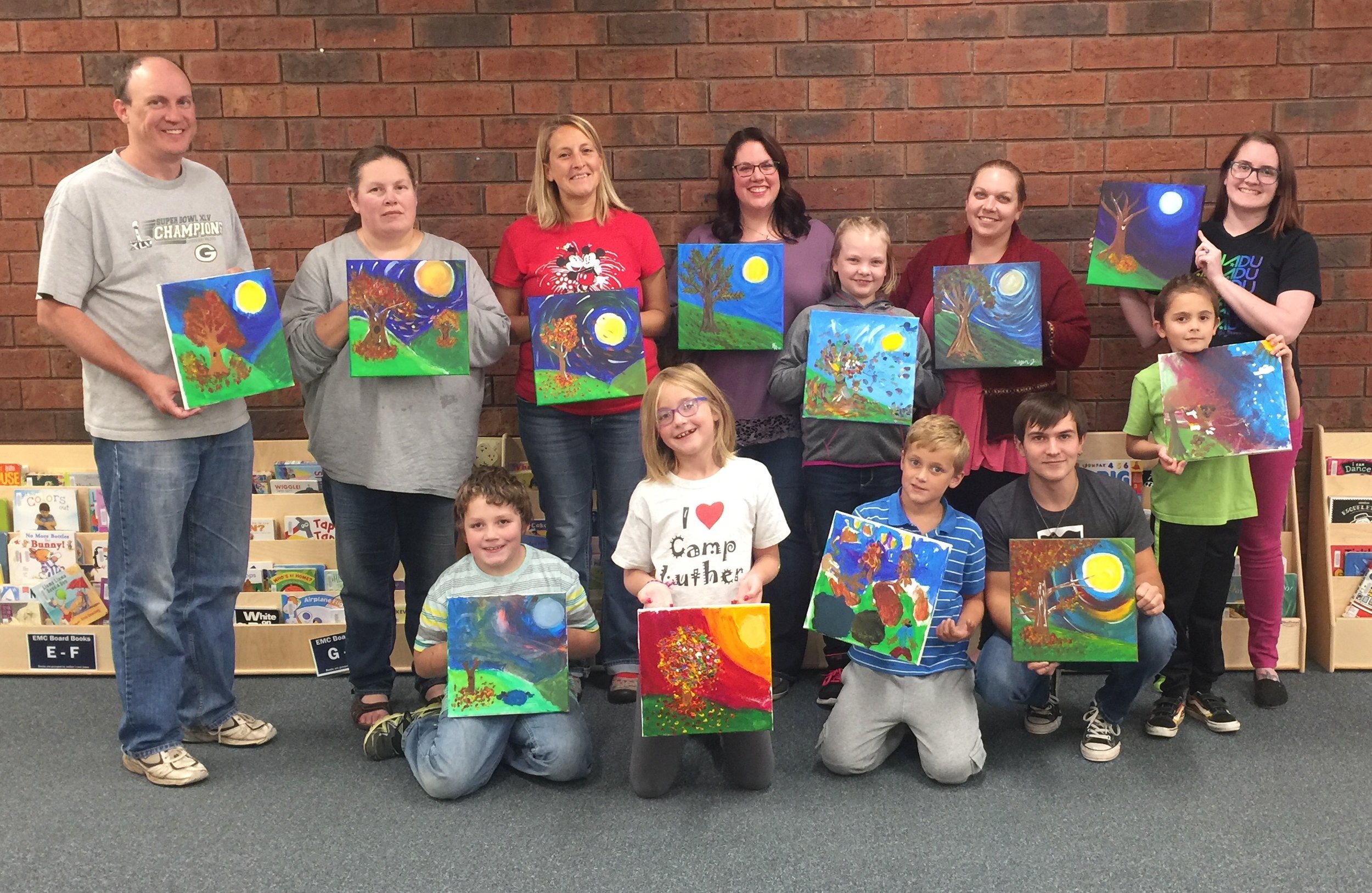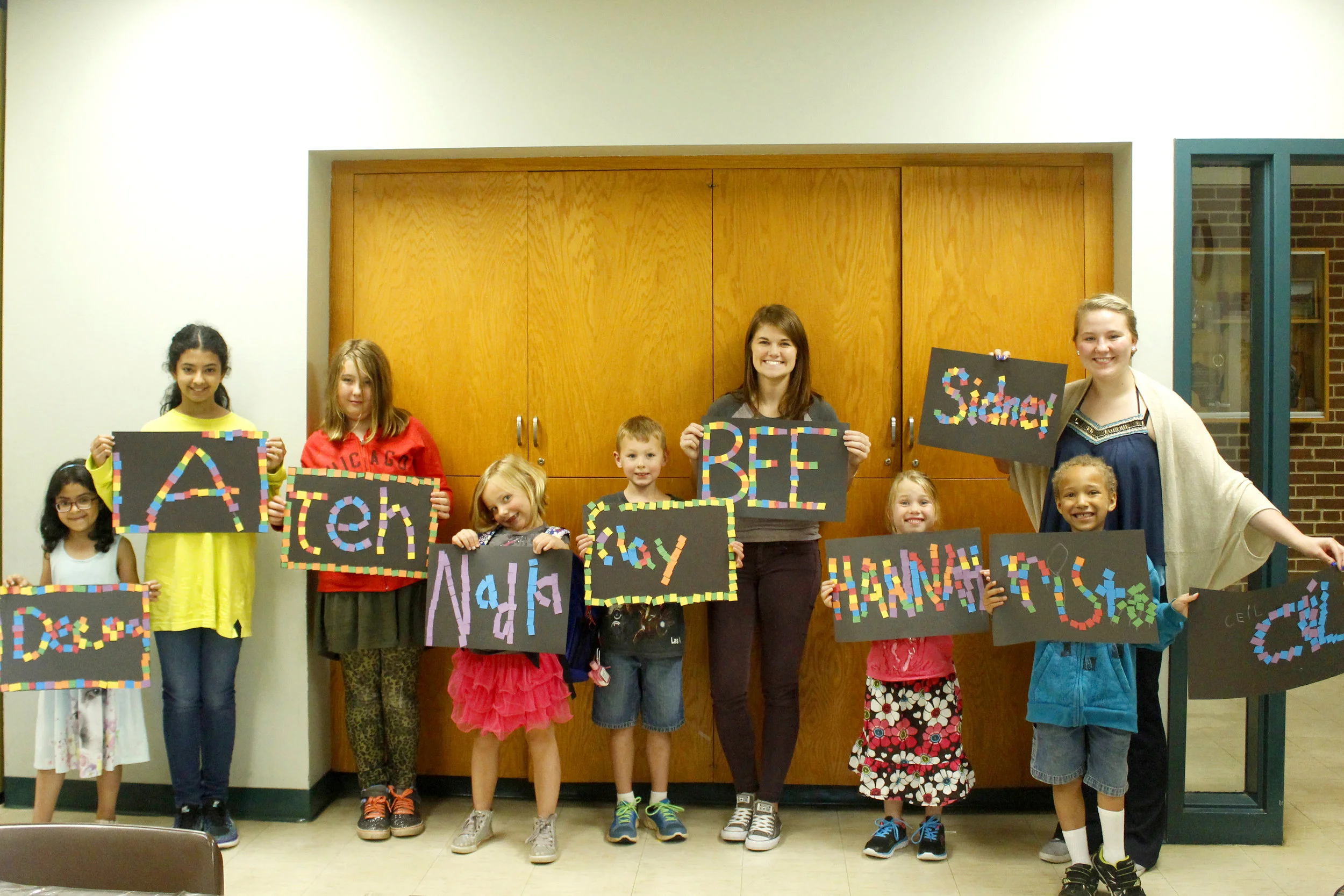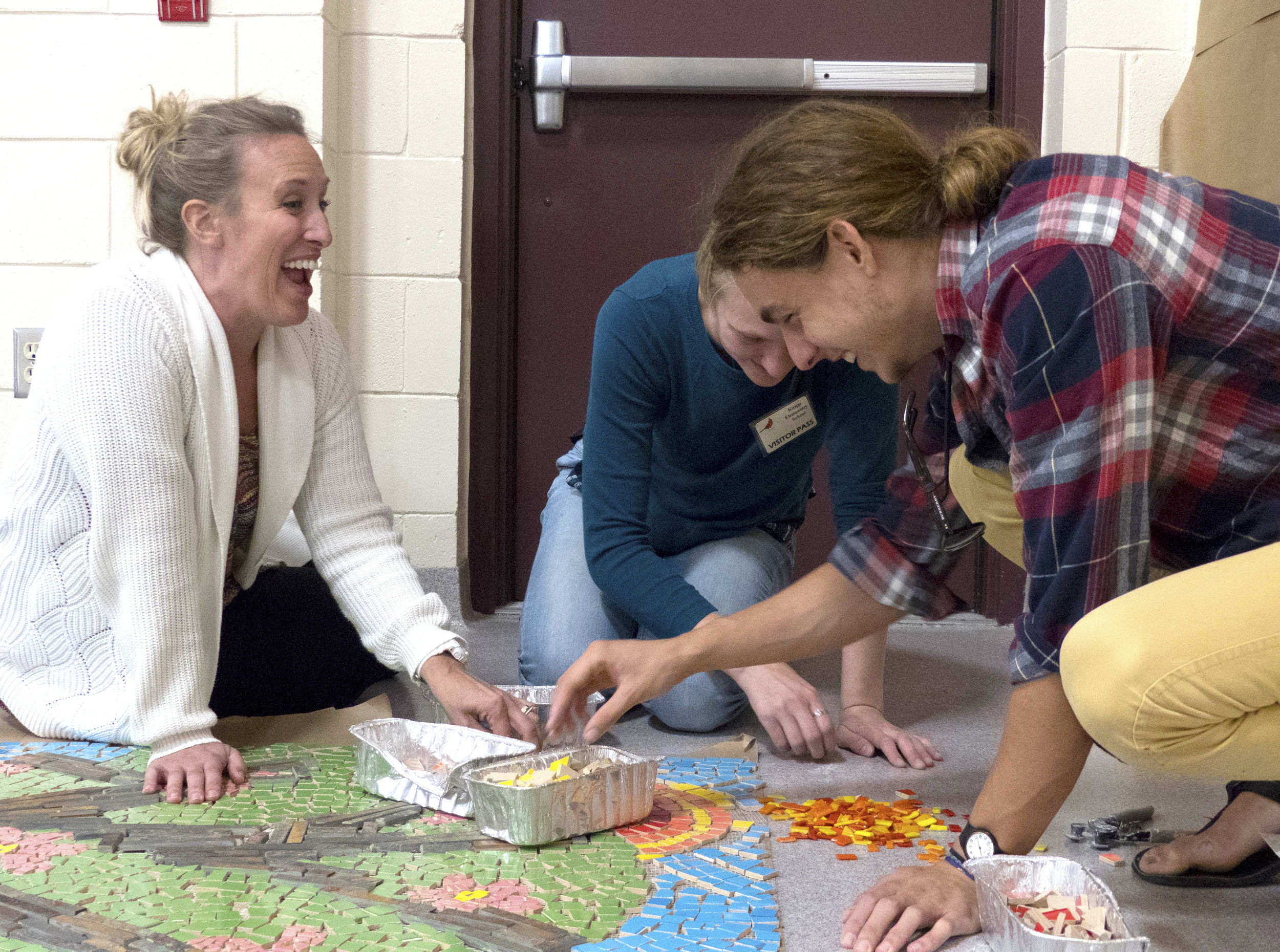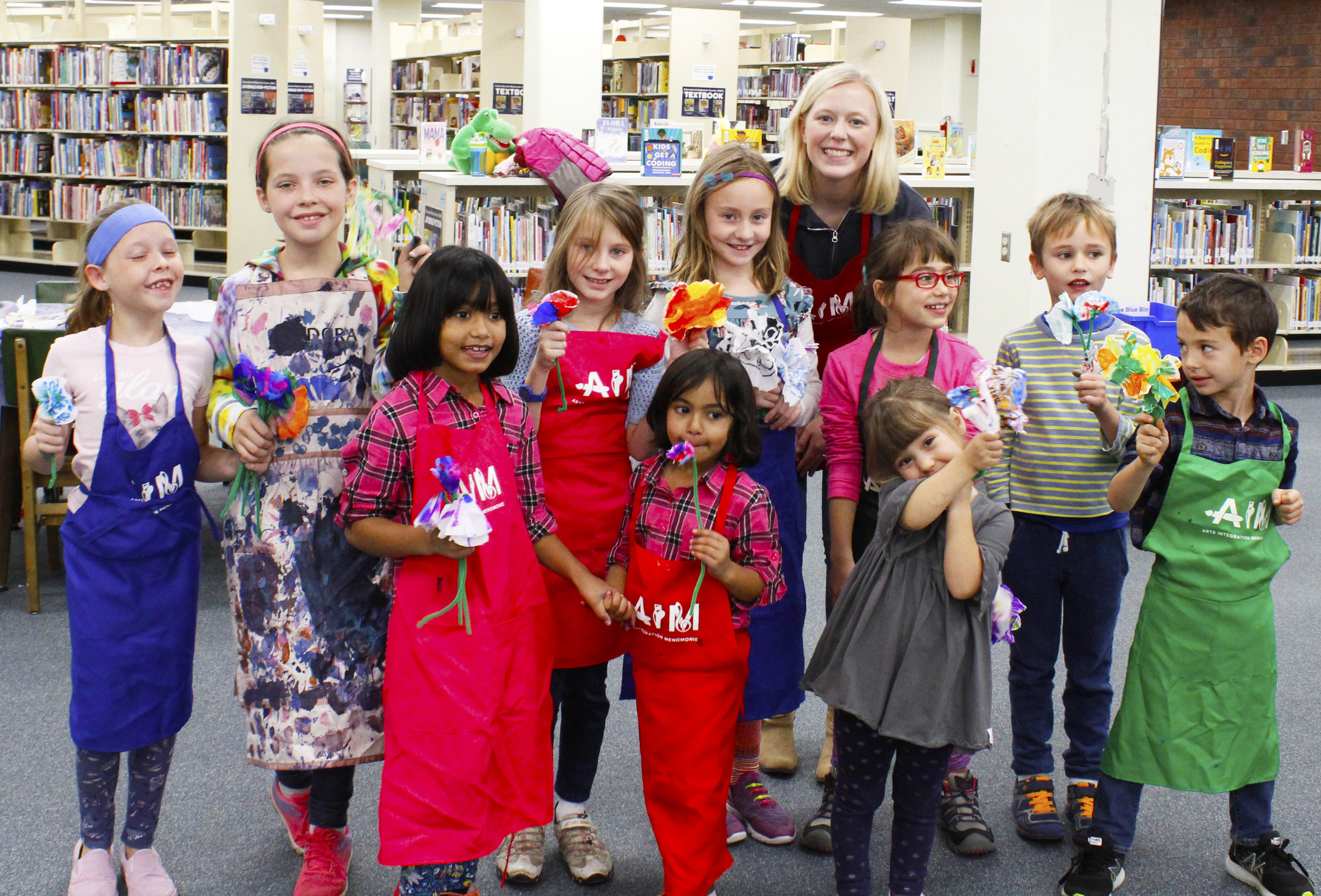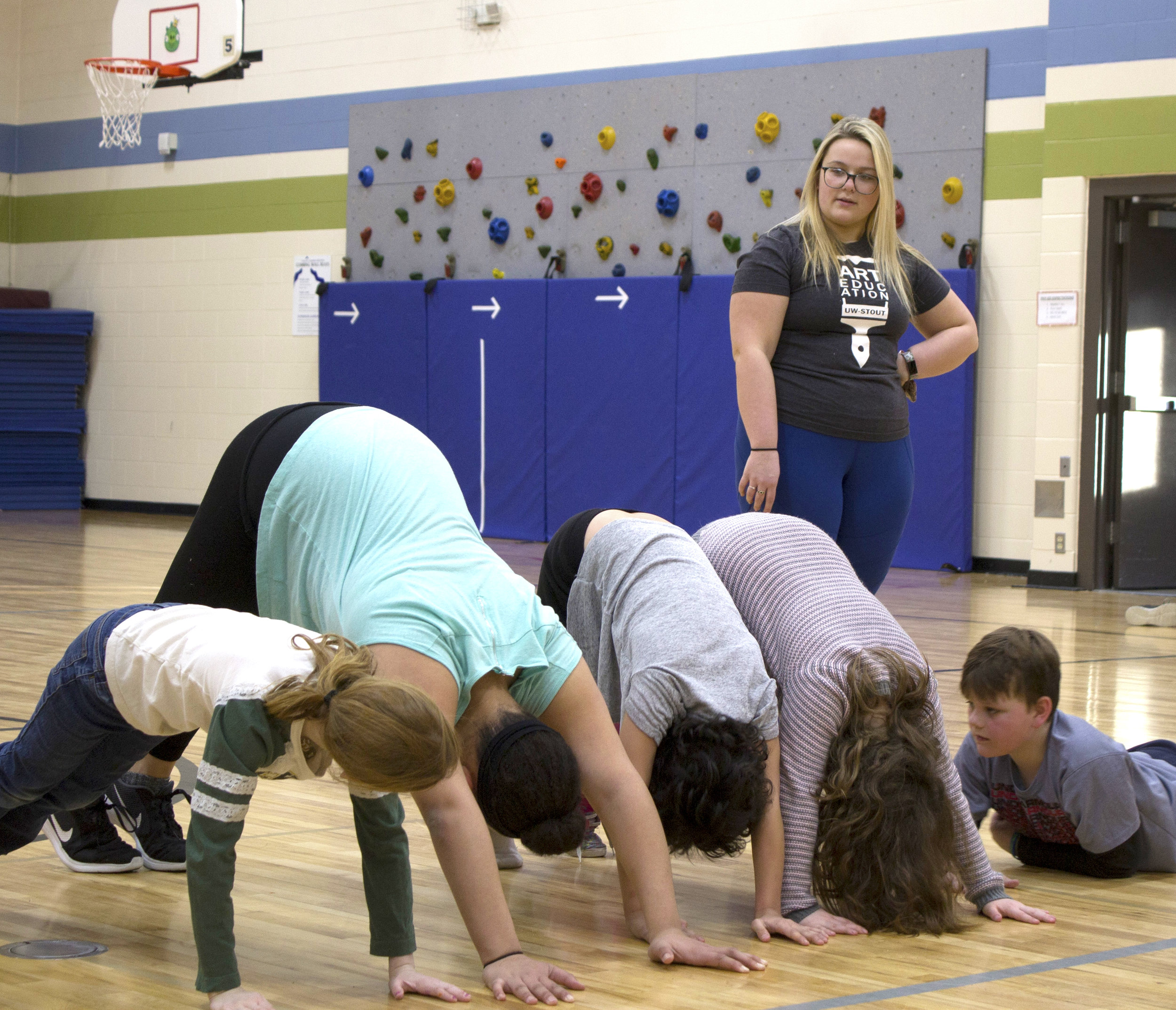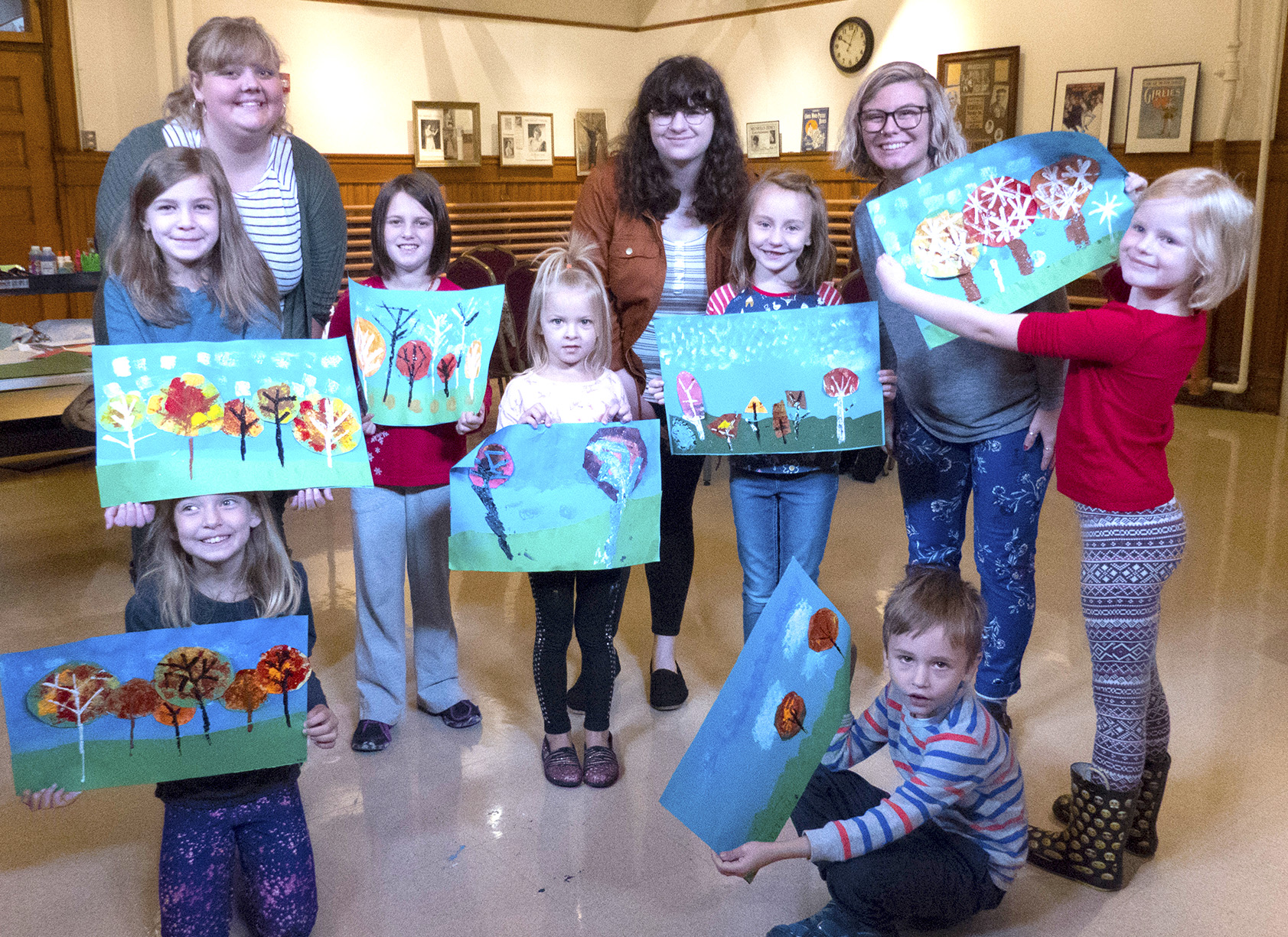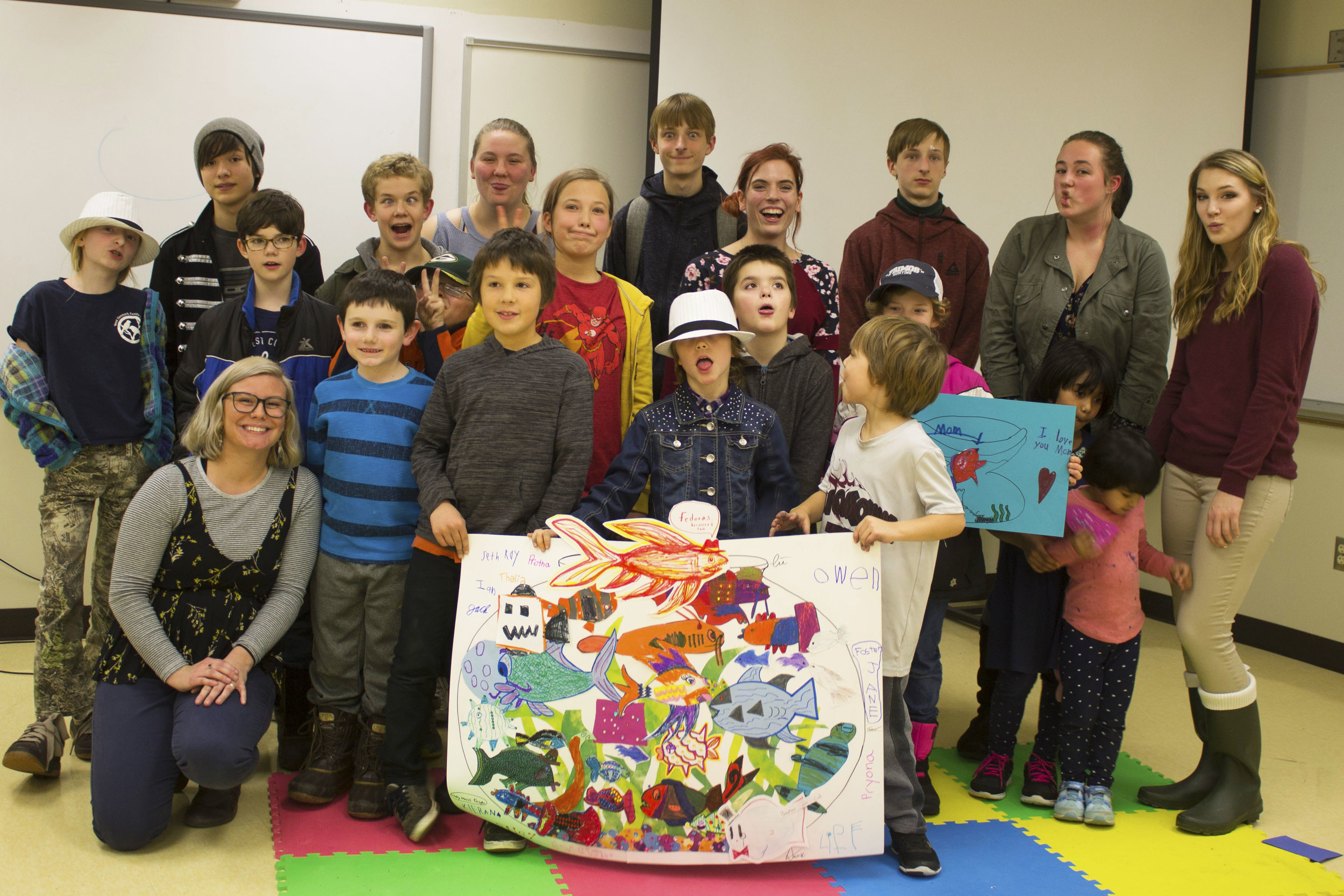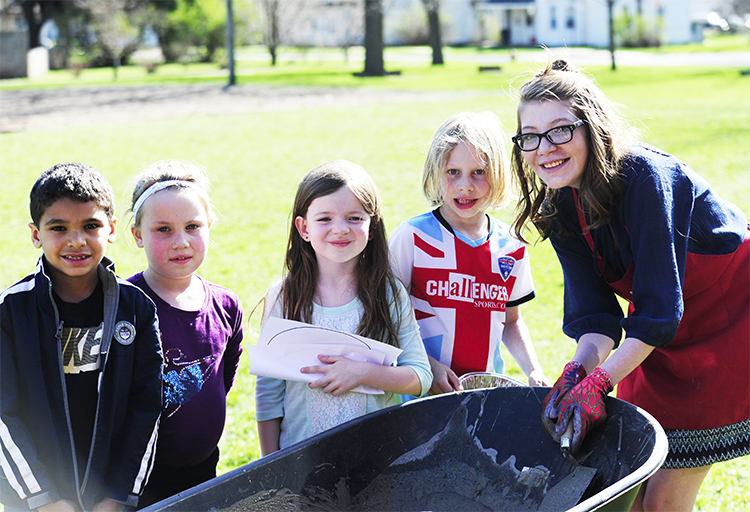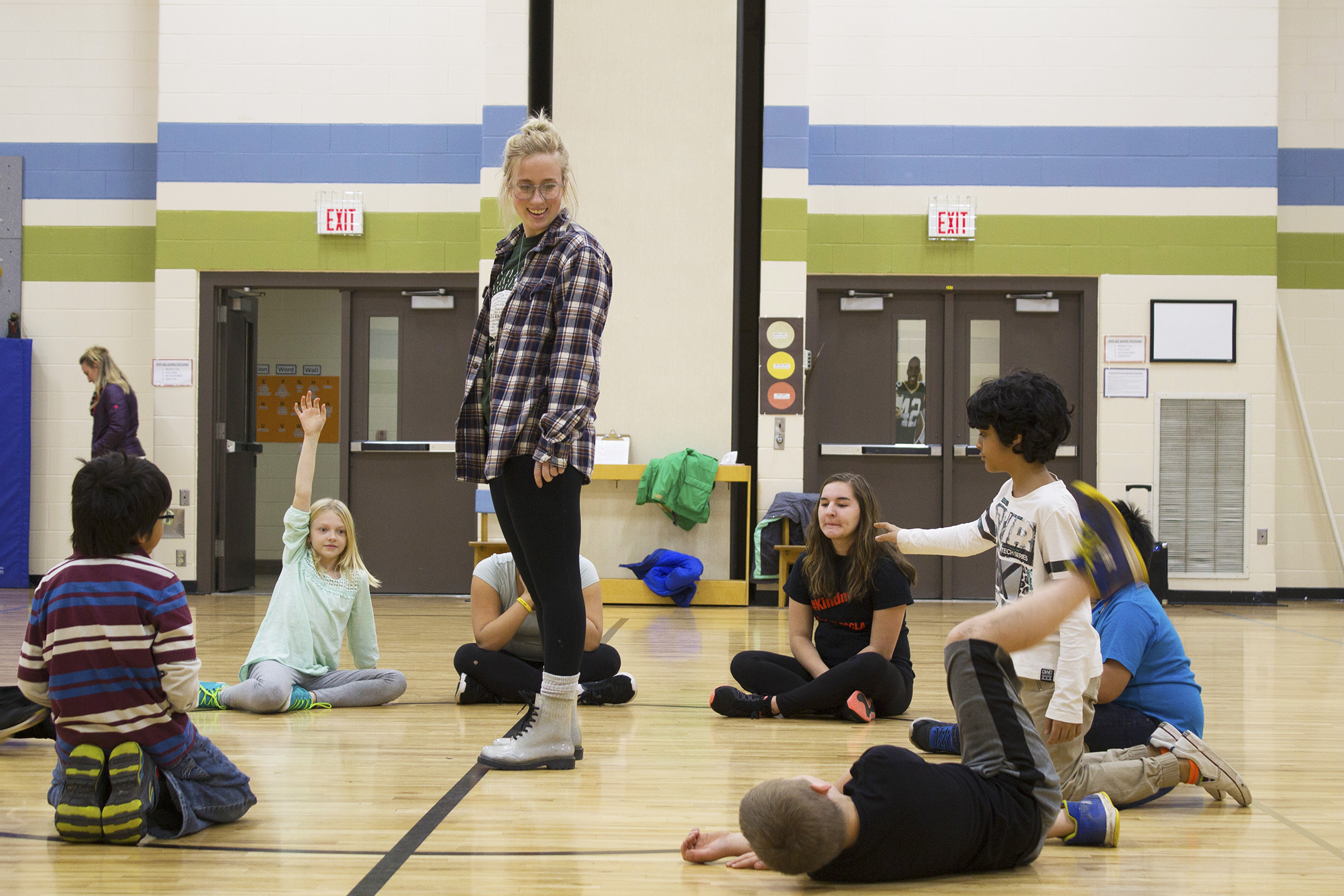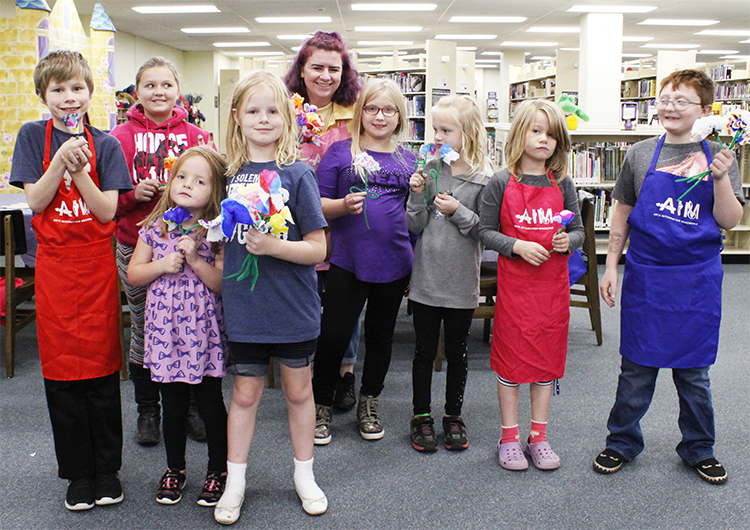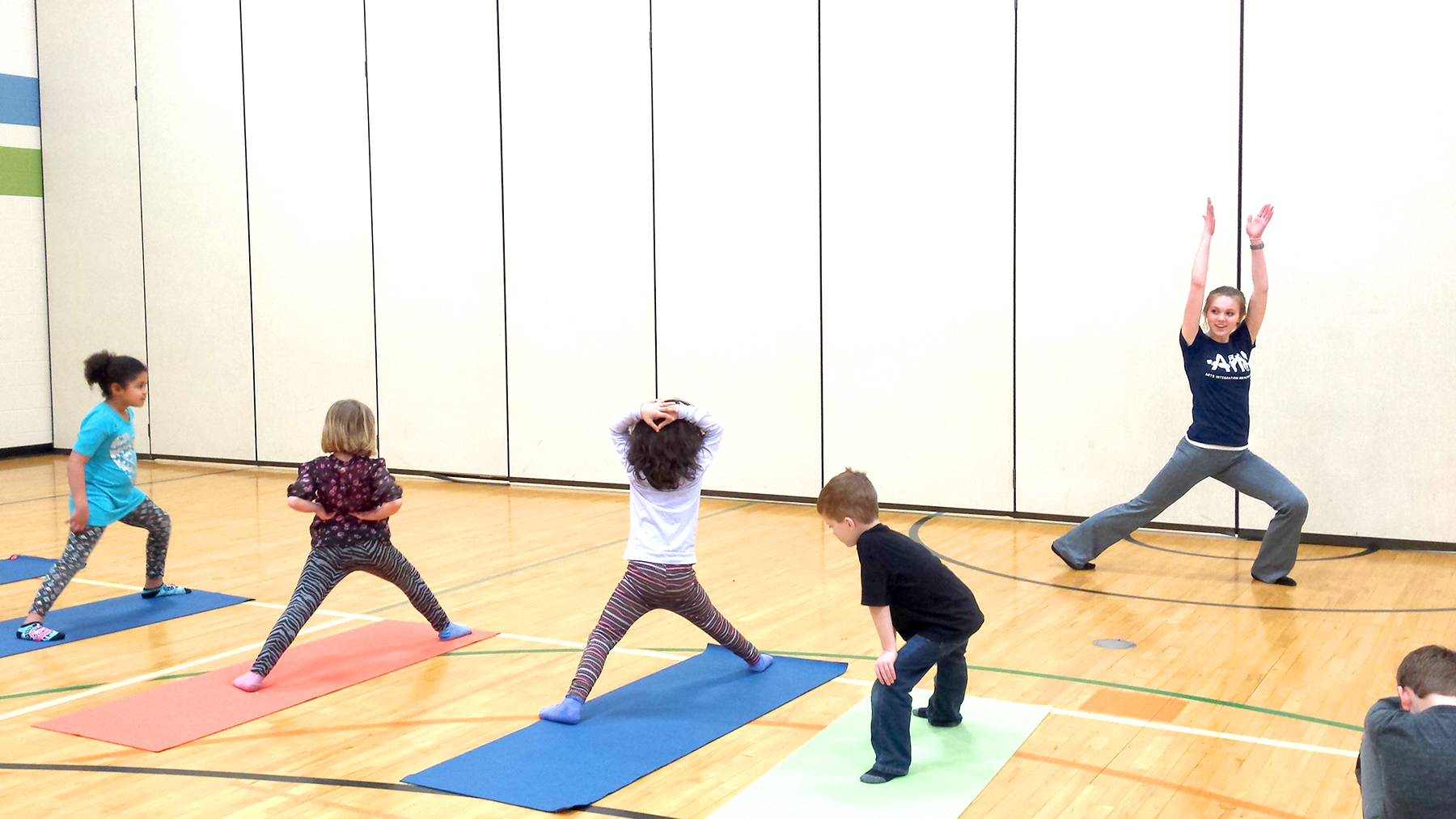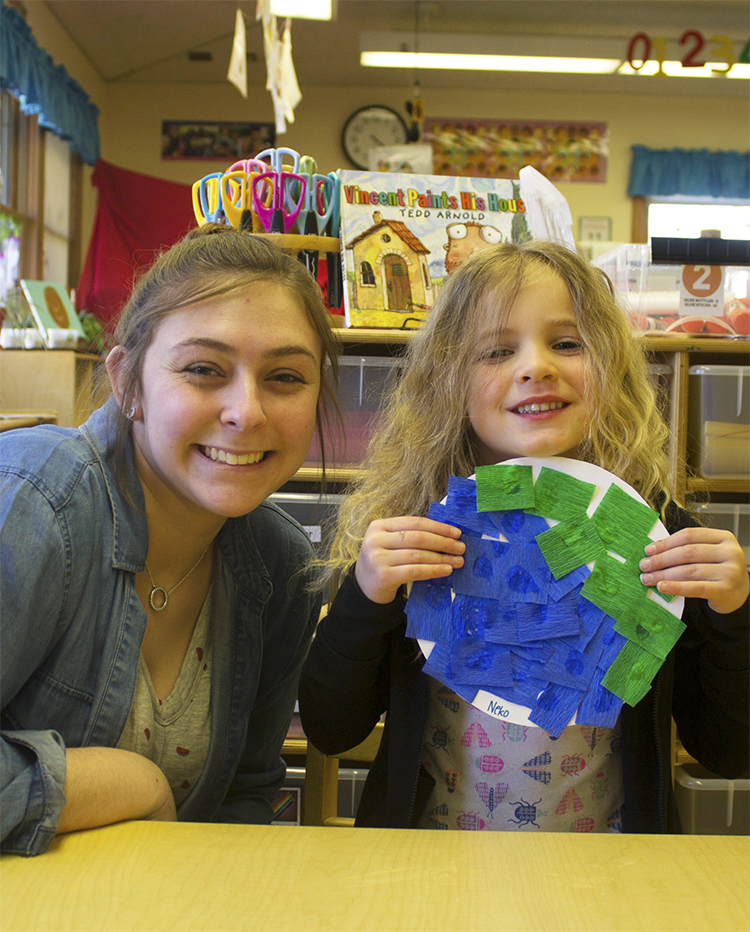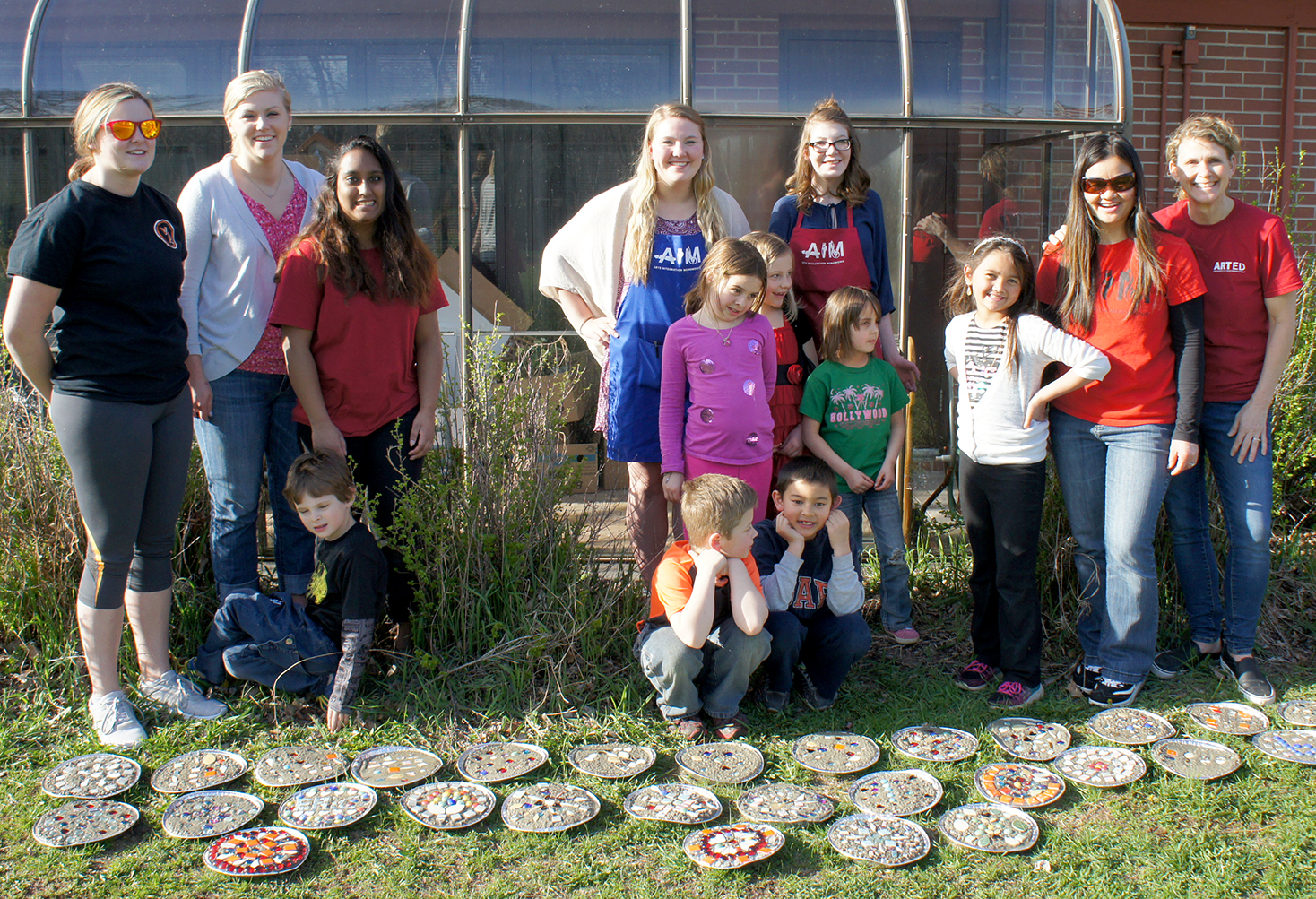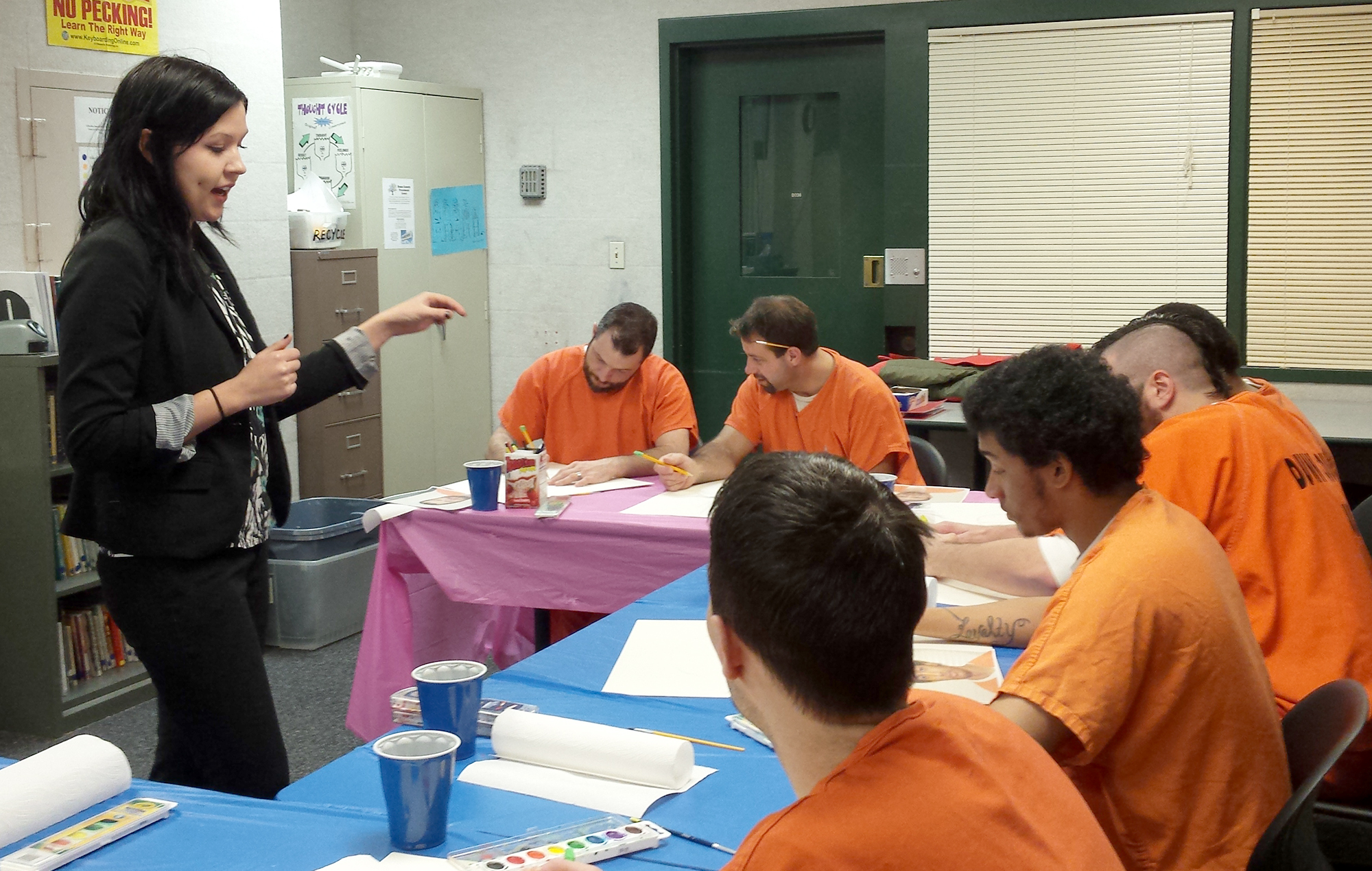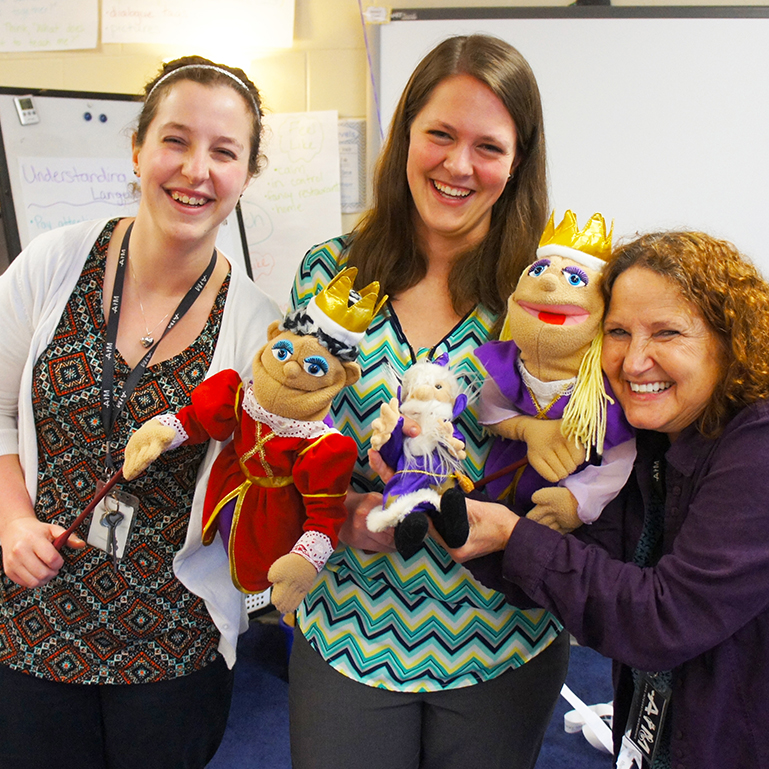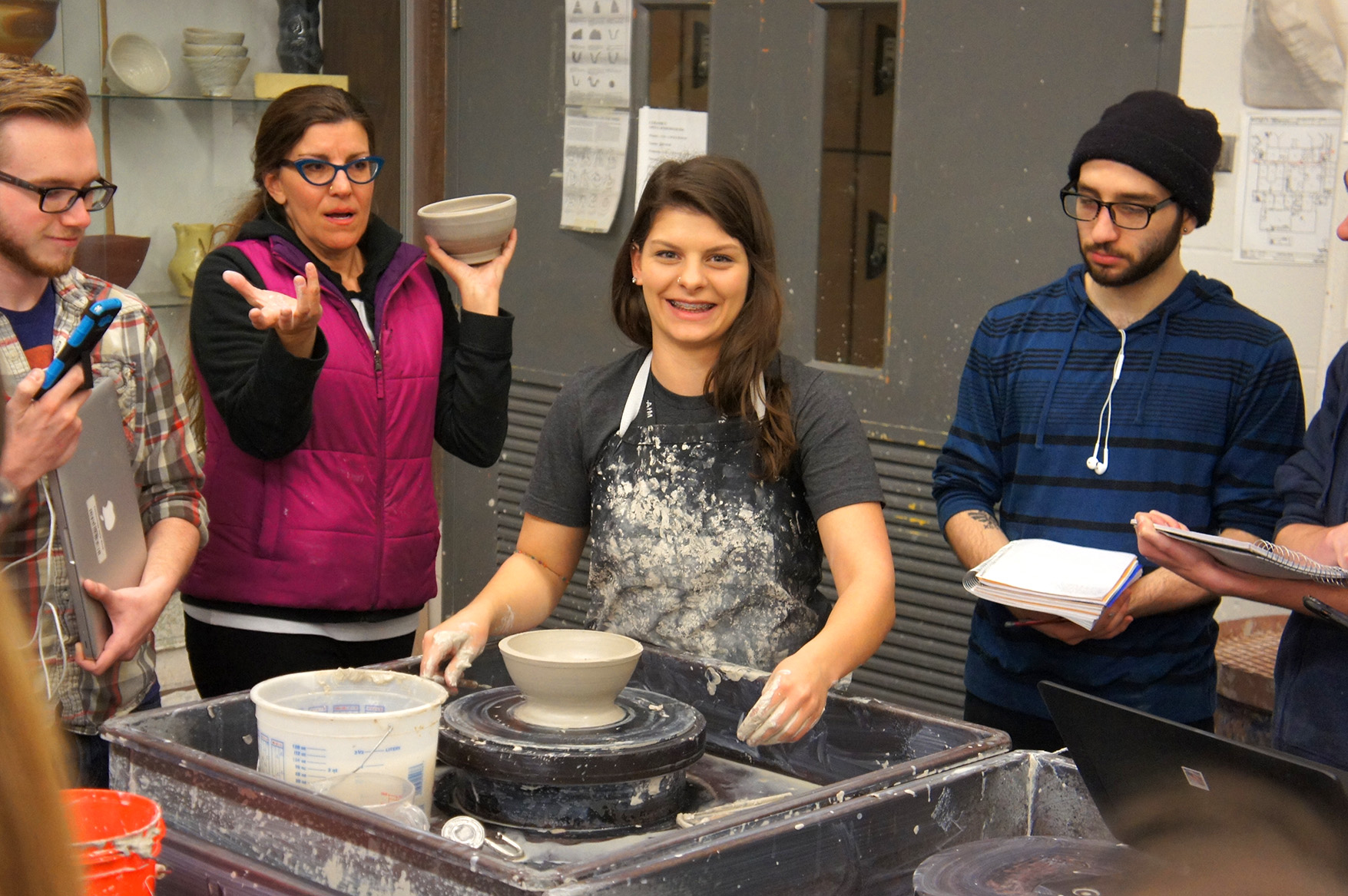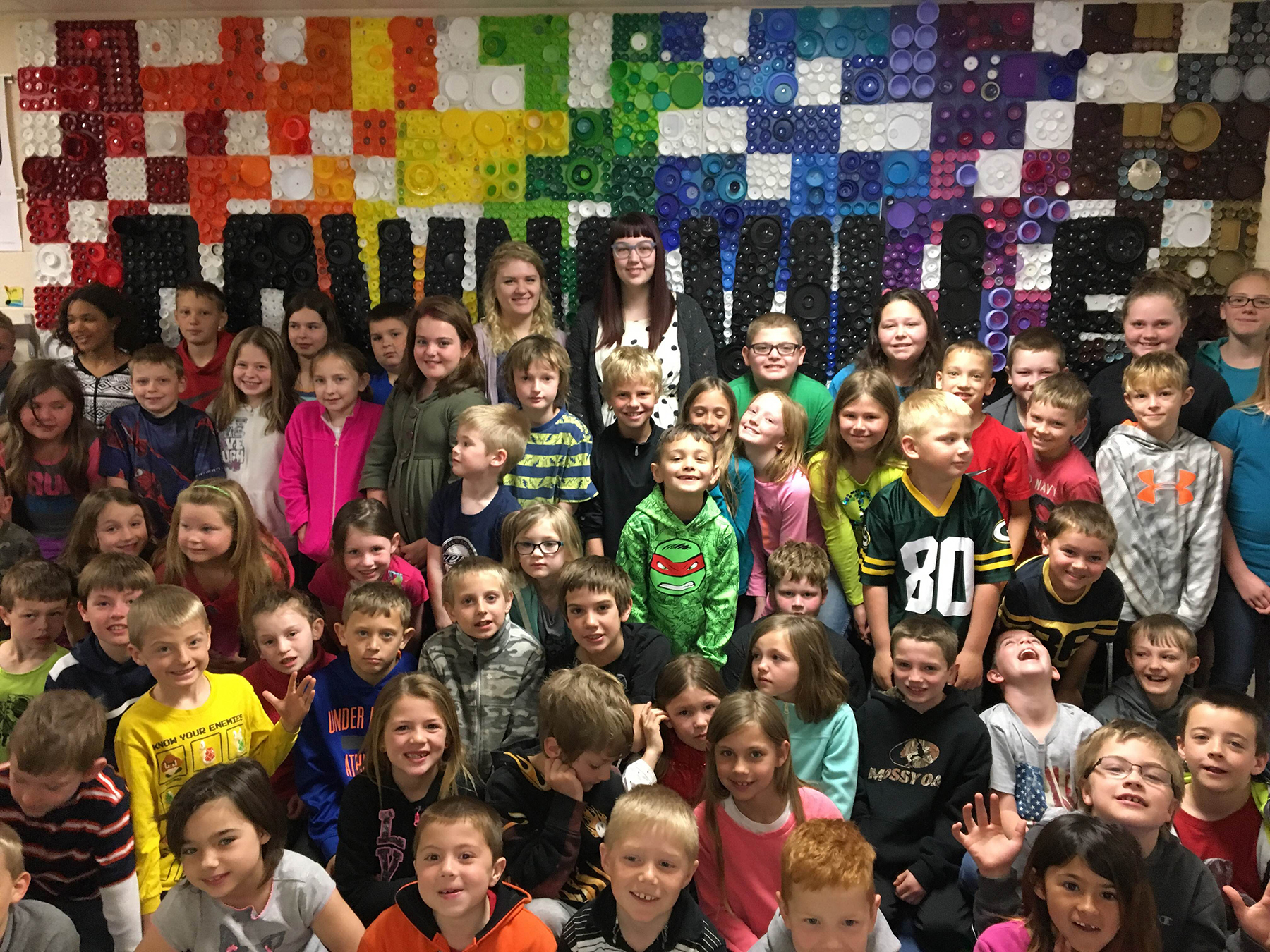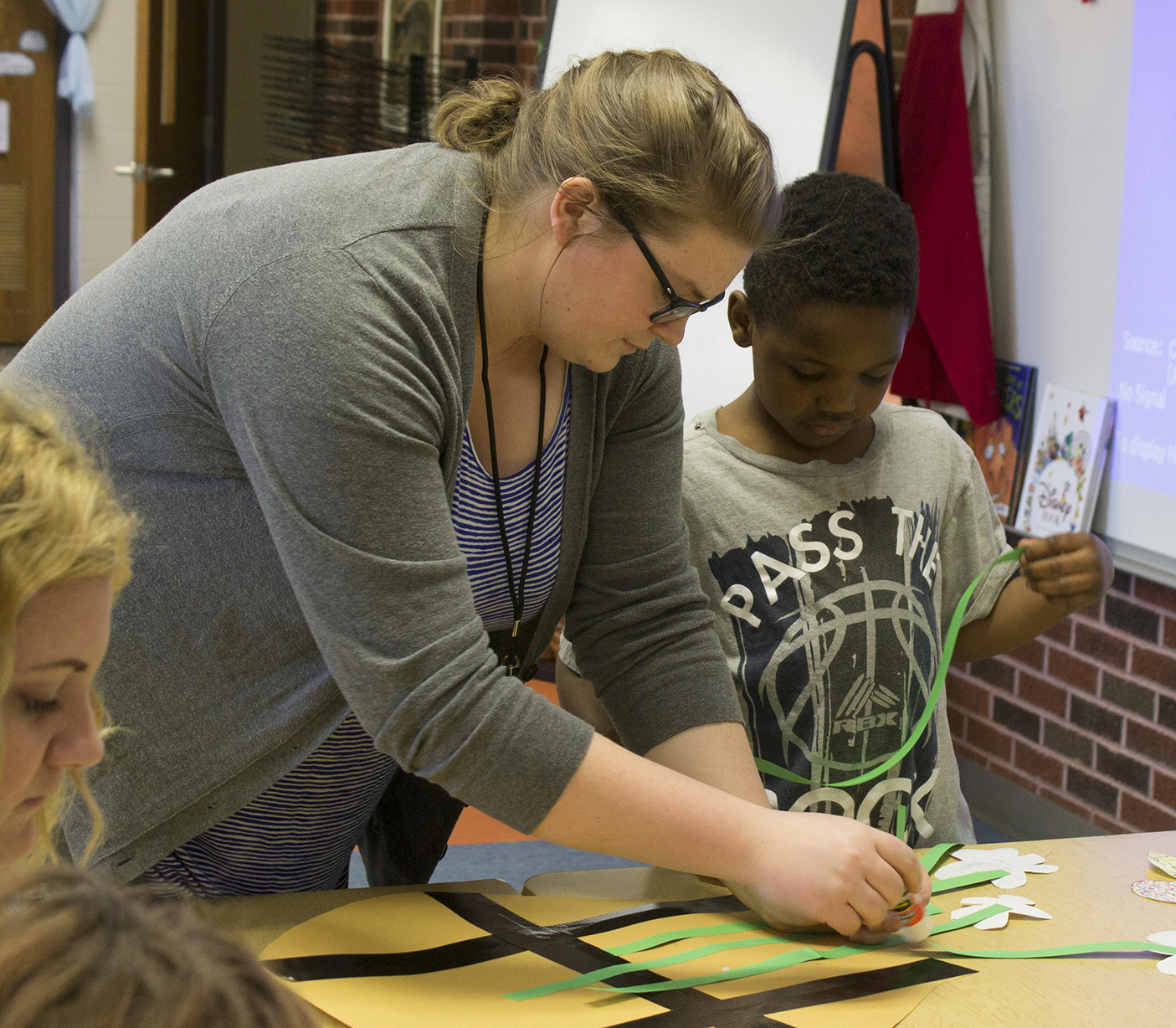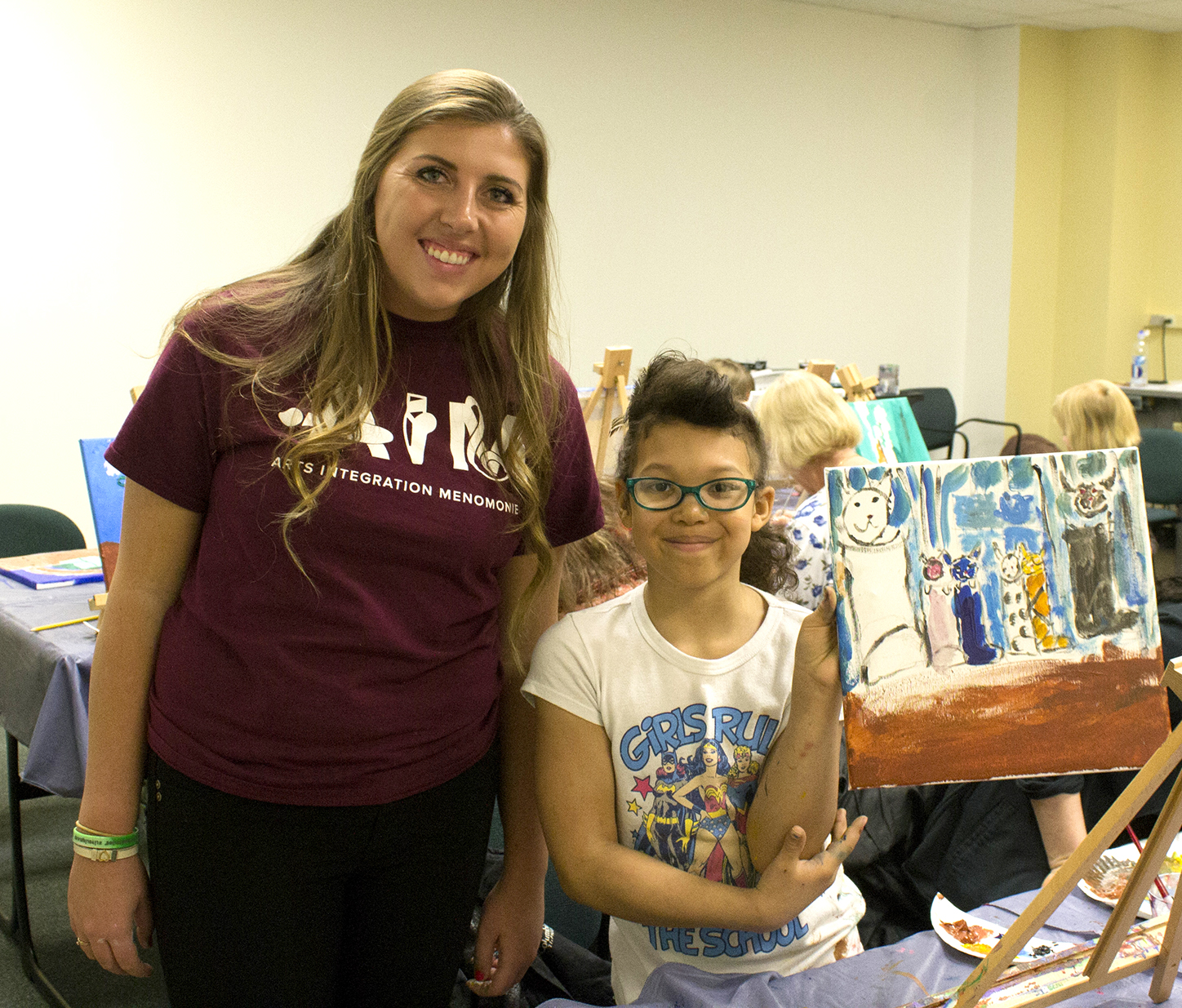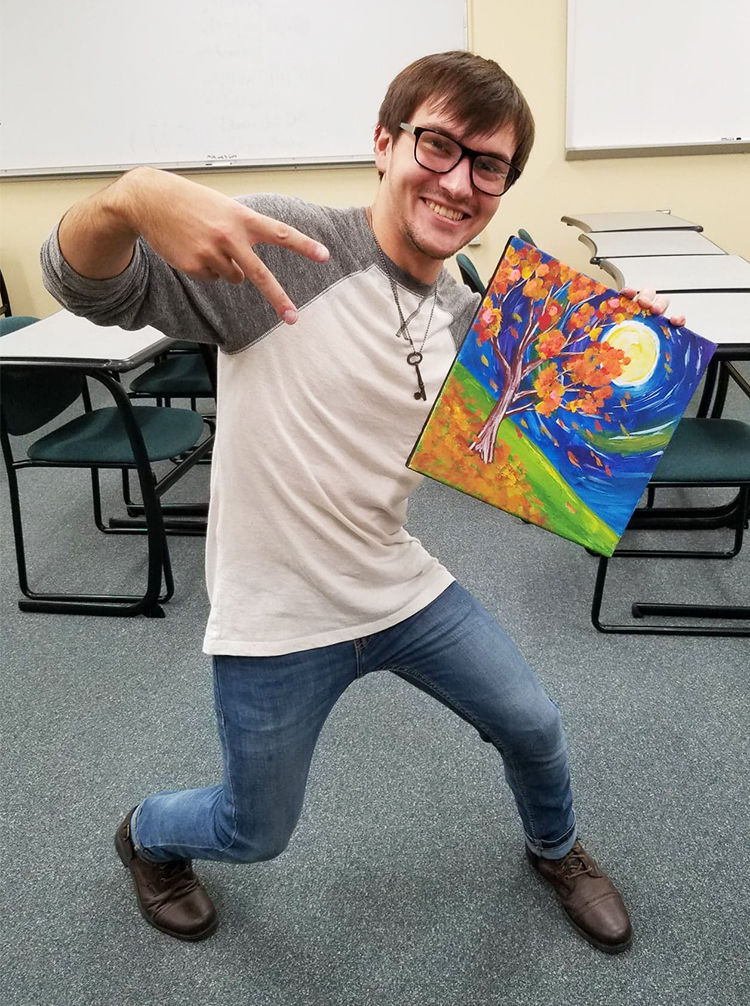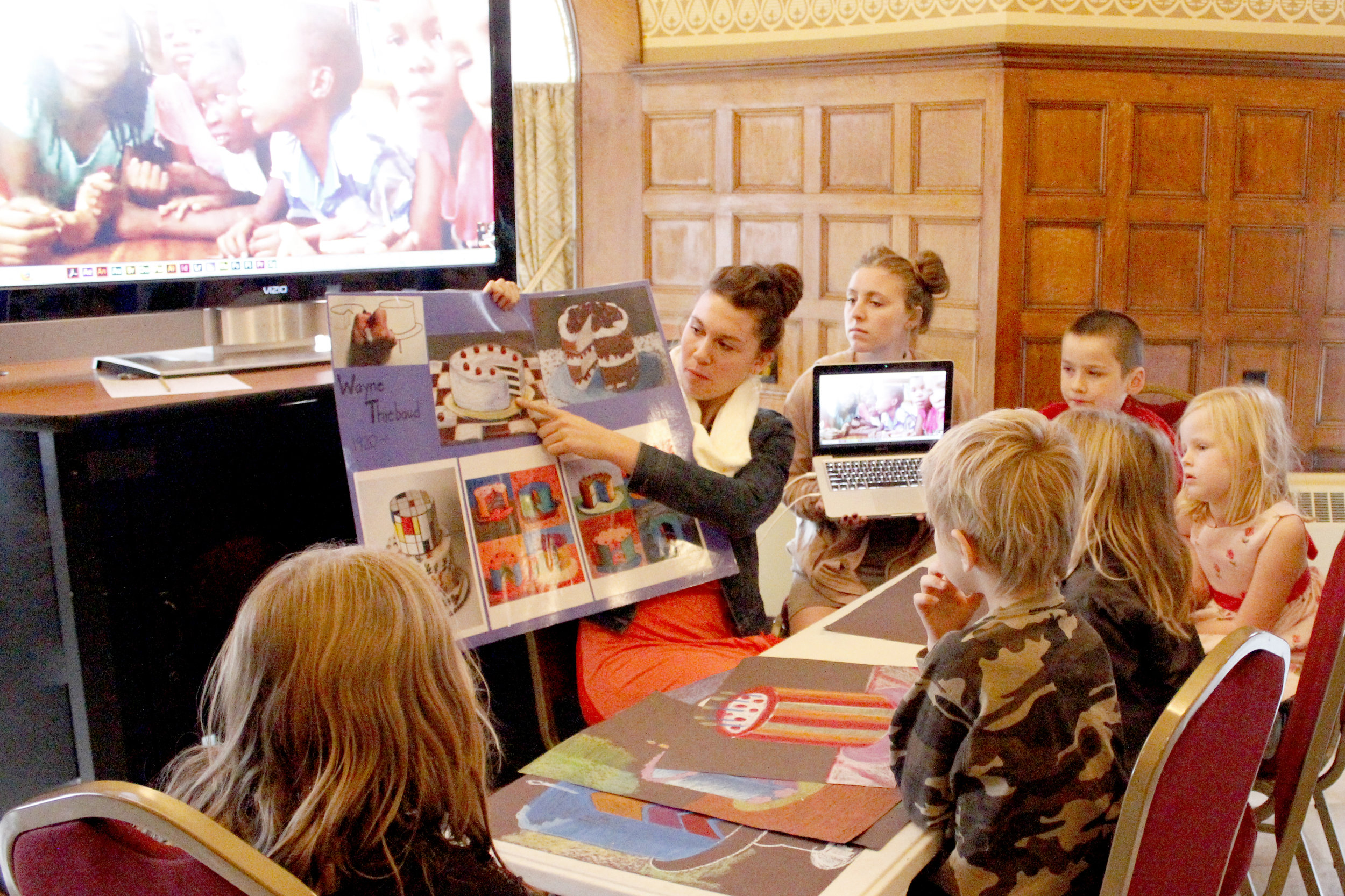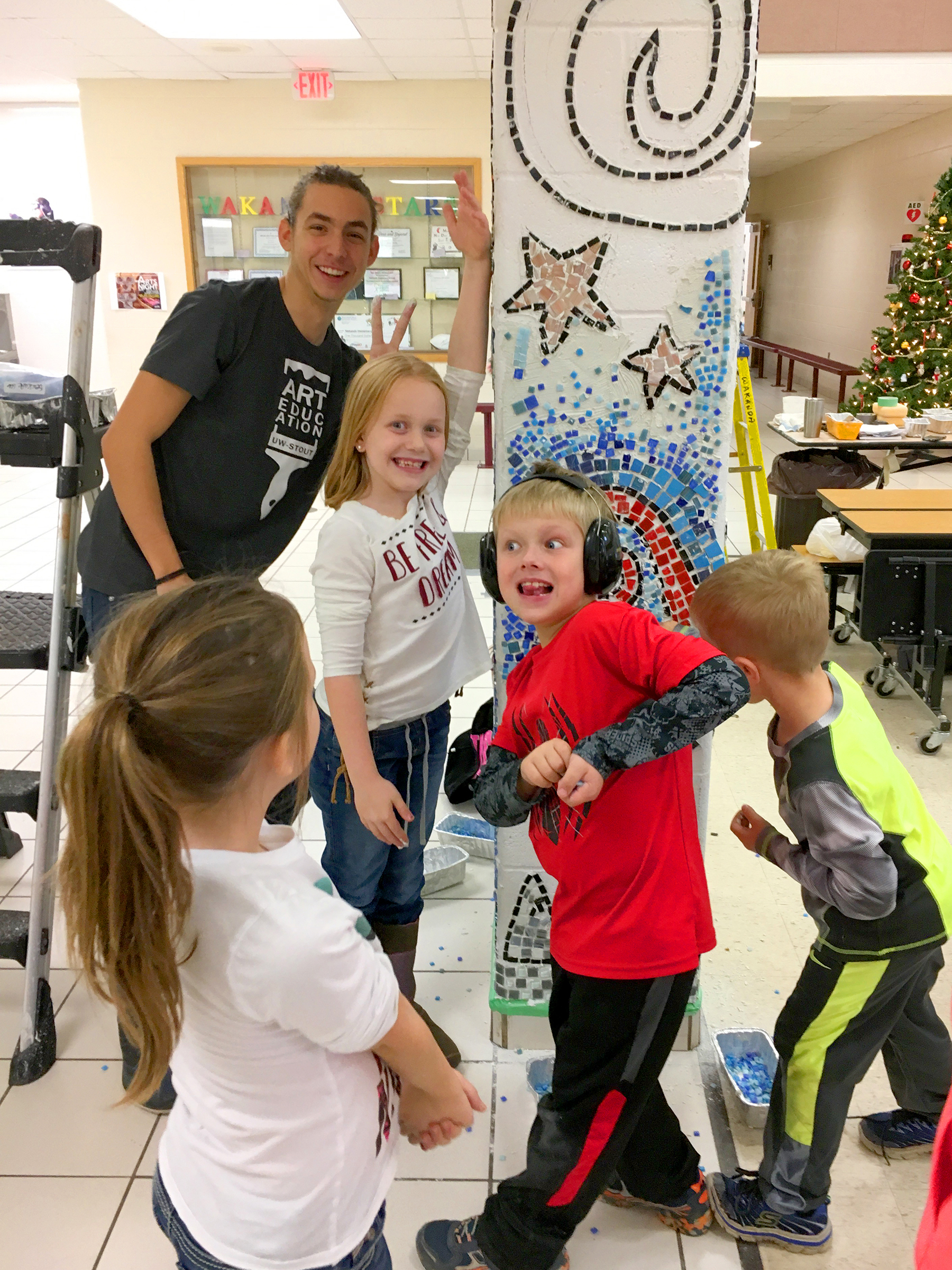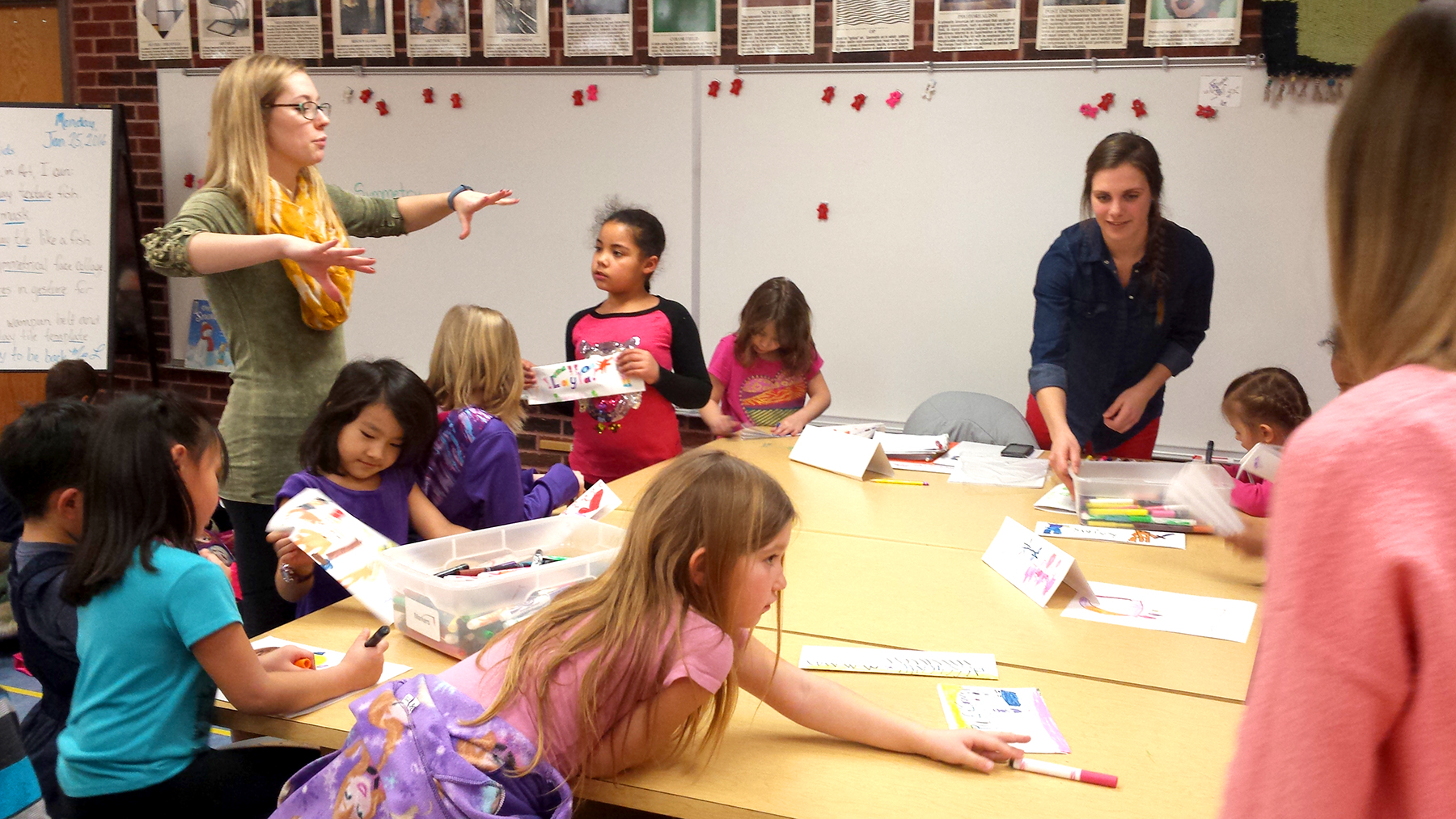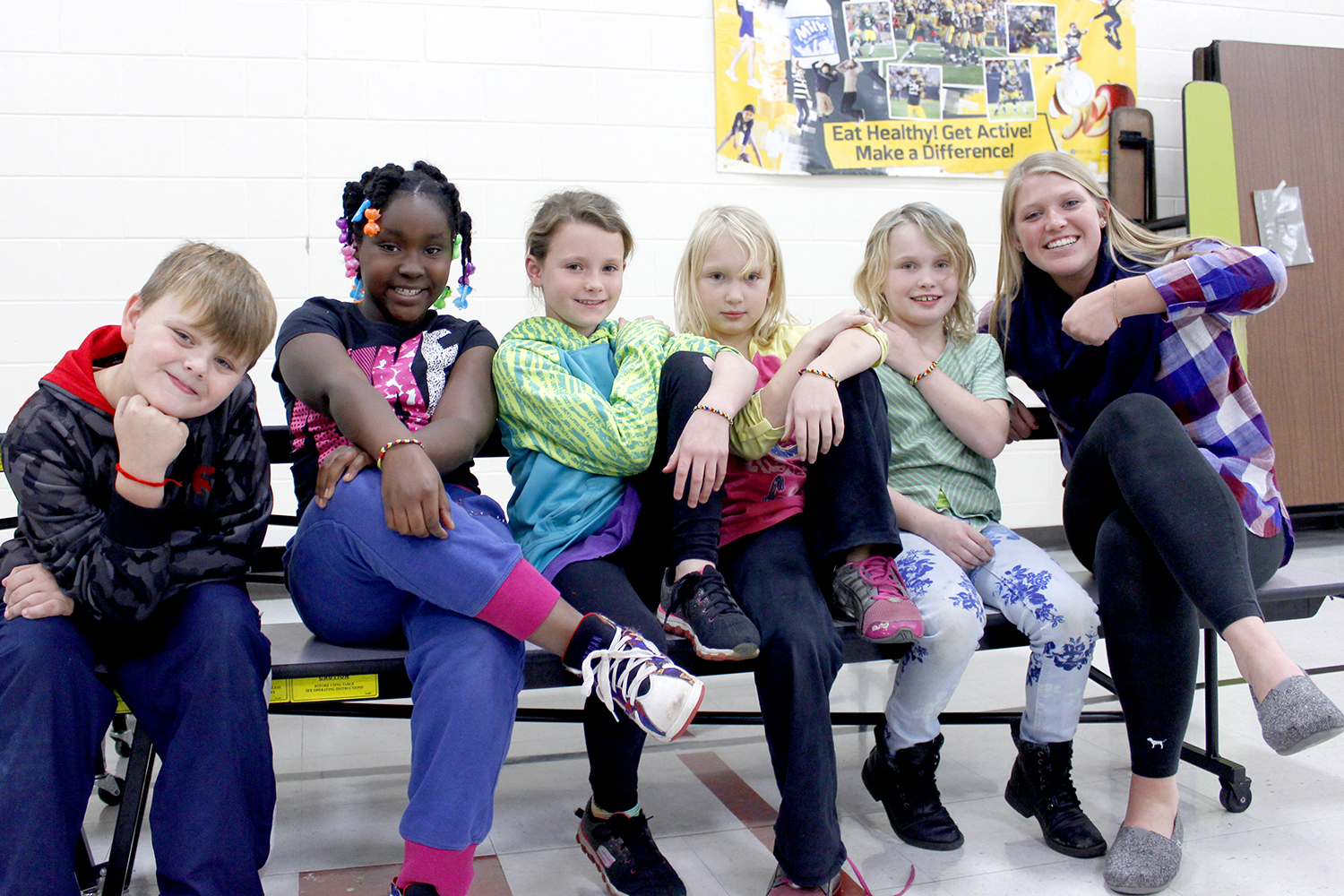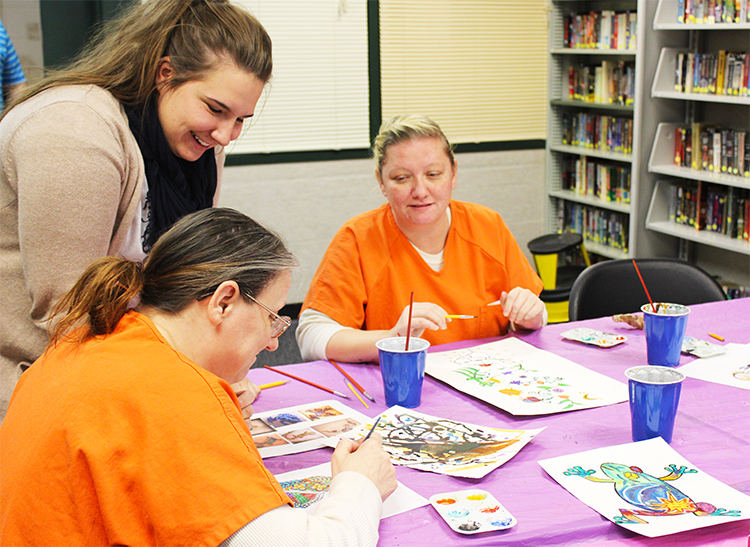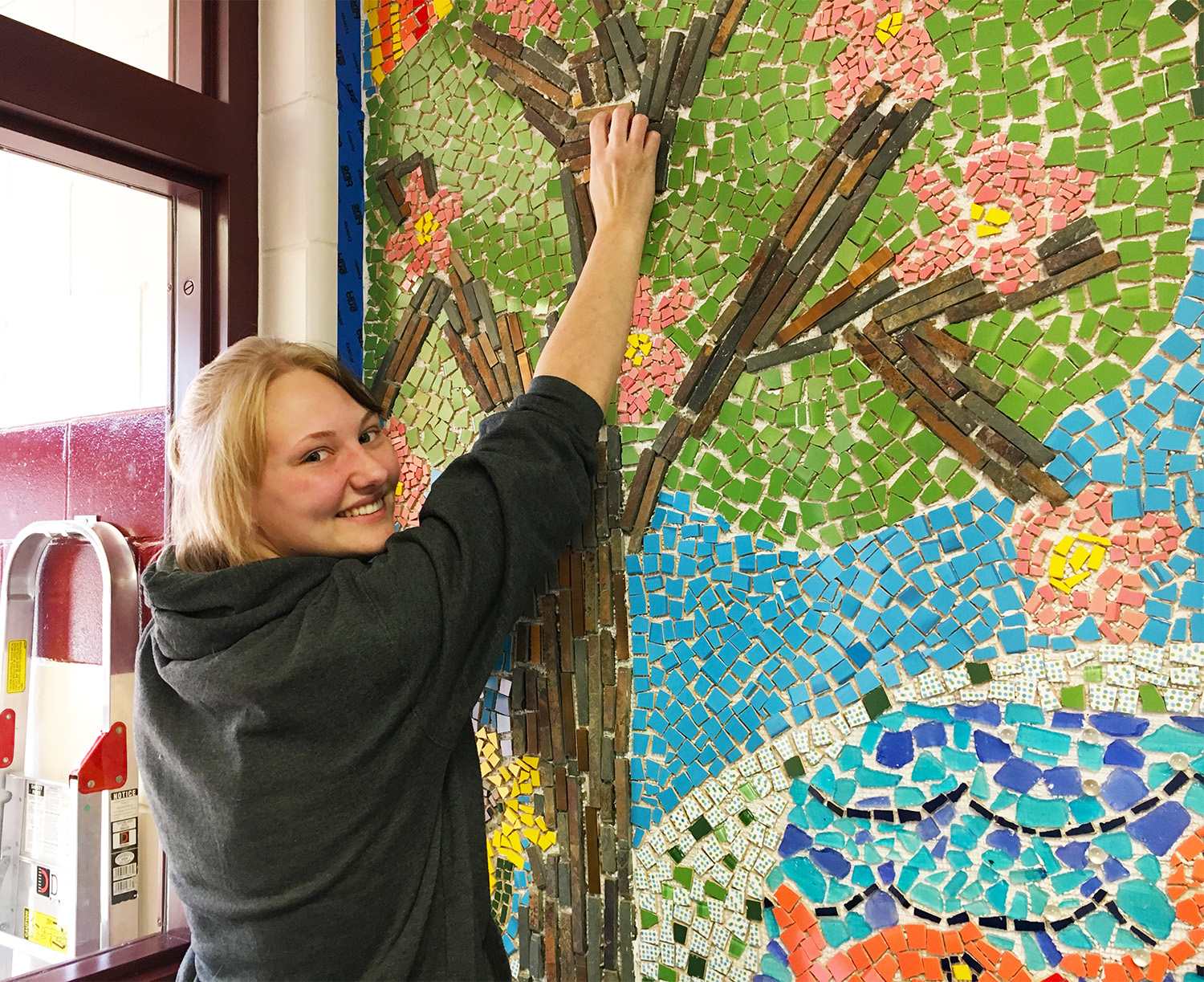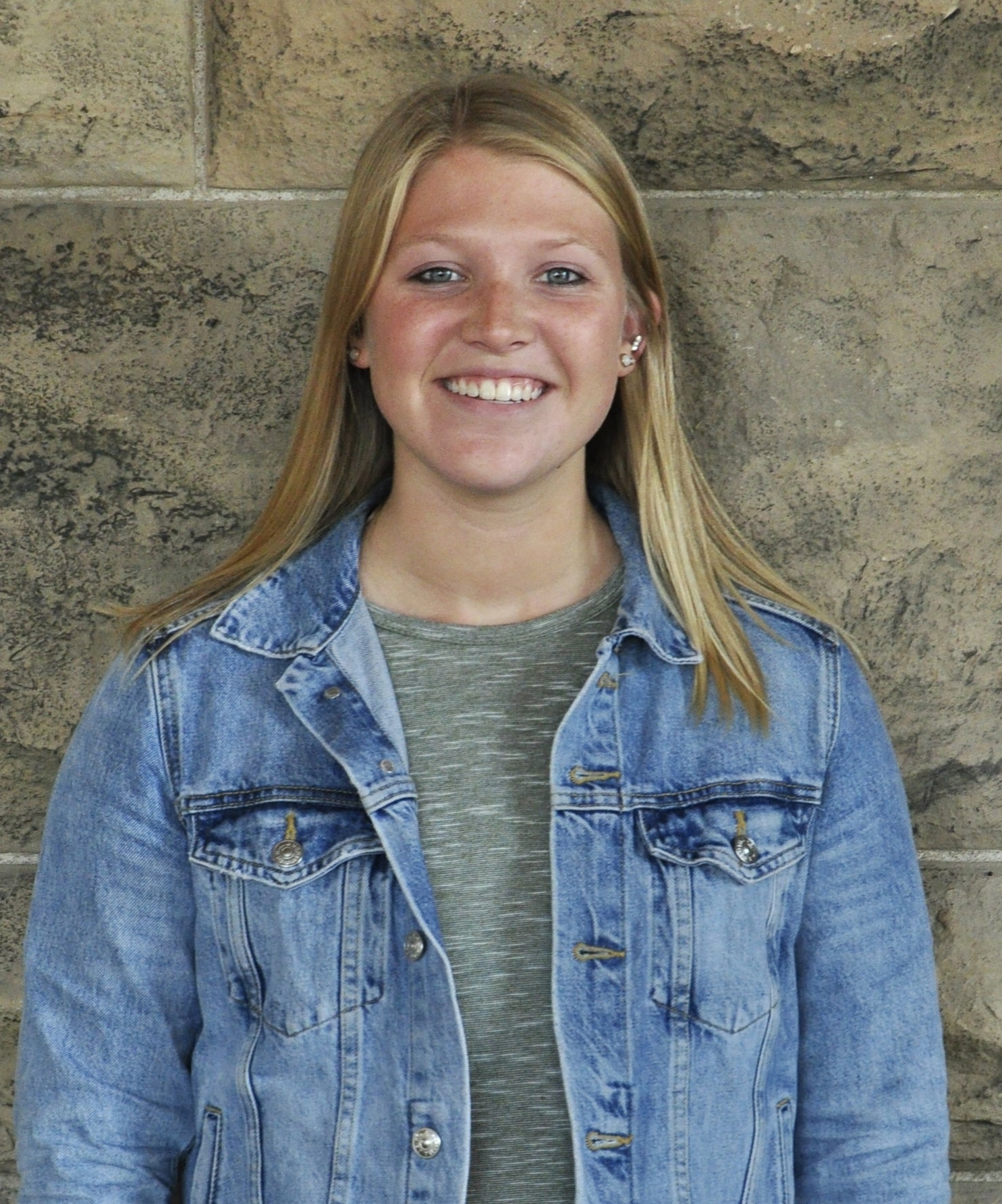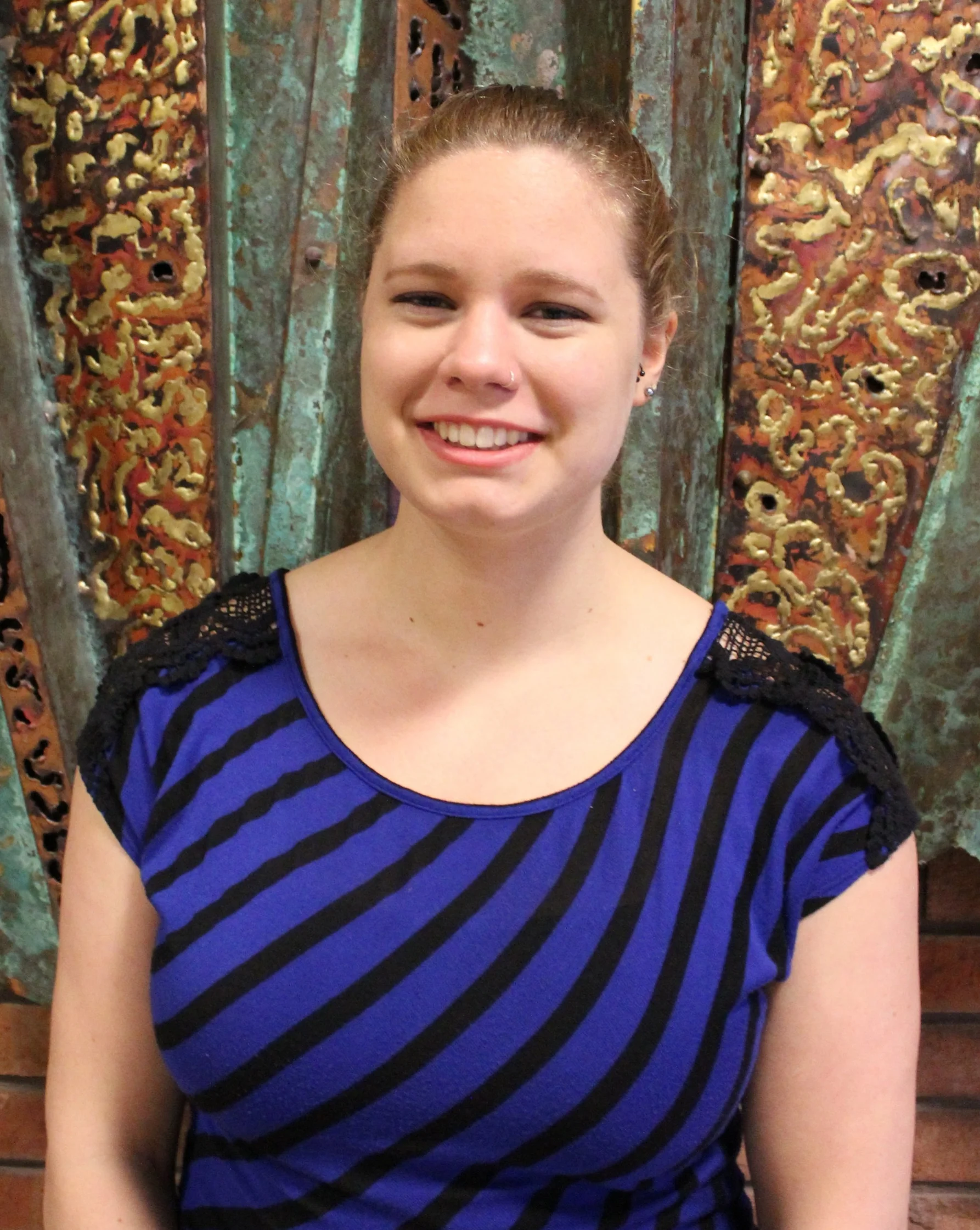Program for arts integration for new teachers (p.a.i.n.t.)
Please enjoy our latest video about A.I.M.’s Internship program. We call it “P.A.I.N.T.”- Program for Arts Integration for New Teachers!
THROUGH THE P.A.I.N.T. PROGRAM, UW-STOUT STUDENTS ARE HIRED IN PART-TIME INTERNSHIPS TO TEACH artS-BASED classes WITH KIDS AND/OR ADULTS IN THE LOCAL COMMUNITY.
about the P.A.I.N.T. program
P.A.I.N.T. is an internship program based at the University of Wisconsin-Stout which partners with local organizations to offer art classes led by university students who are studying to become teachers.
Through hands-on internships, pre-service teachers (UW-Stout students earning a teaching degree) are hired to teach arts-based classes in the community, giving them an opportunity to experience the instructional responsibilities of a teacher. The P.A.I.N.T. pre-service teacher intern grows their competence and confidence in teaching through practice and reflection, and by making connections with students, peers, and teaching professionals.
The P.A.I.N.T. intern begins as an observer and grows their experience (and pay rate) through additional internships over the course of their college career. By the time they complete their degree program, the PAINT participant enters their professional career with the competence and confidence that comes from years of teaching experience.
Through the P.A.I.N.T. program, the university student will:
Gain early and ongoing hands-on teaching practice in educational settings with children.
Collaborate with other pre-service teachers and career teachers to plan lessons and share teaching responsibilities.
Learn and develop arts-based skills and lessons to incorporate into future teaching.
Reflect on their growth as an emerging teacher.
OBJECTIVE
pre-service teachers increase their competence AND confidence in teaching through authentic arts-integrated teaching experiences.
WHY apply for a P.A.I.N.T. internship?
You want to be a teacher “when you grow up.”
You want to work in a job that actually relates to your career.
You want to improve your teaching abilities.
You want to improve your skills in the arts.
You want to develop lessons that you can use in your future teaching job.
You want to have fun at your job.
You want to see what it is like to be a teacher to make sure it is a good fit for you.
You want work hours that fit in your college course schedule.
You want to make good money (nearly twice as much as work study).
It looks great on a resume!
IMPACT
Hands-on teaching experiences have a significant impact on the professional growth of an emerging teacher. These experiences are deepened when teachers and students come together in artful collaboration and creation.
In the P.A.I.N.T. program, university students who are studying to become teachers:
are employed in career-related teaching internships that prepare them for their future as a teacher.
experience growth in their instruction, classroom management, and lesson planning.
experience increased competence, confidence, joy, and resilience in teaching.
expand their teaching “tool kit” using arts-integration.
realize the importance of self-expression and creativity in a child’s education.
build relationships and support networks with each other and with teaching mentors.
become more secure in their career choice, and they enter the teaching profession feeling prepared.
hear it from our interns!
JACKSON GARDNER, Art Education
Left: Mr. Jonathan Wheeler,
Elementary Art Teacher
Right: Jackson Gardner,
pre-PAINT intern, Art Education
As part of my pre-P.A.I.N.T. internship, I had the pleasure of working with Mr. Wheeler, an art teacher who teaches at both Flynn and Robbins Elementary Schools. I decided to take on this internship because I couldn’t wait to get into the classroom. I didn’t want to wait until student teaching until I finally got the chance. My goal at university is to prepare myself to become the best teacher I can be. While taking classes about pedagogy can certainly help, I believe that having hands on experience is truly necessary. Whatever one does, they get better at. If someone were to procrastinate a lot, they become better at procrastination. Likewise, if one practices being a teacher, they become better at teaching.
FIRST DAY:
My first day of the internship was pretty nerve wracking. I haven’t been inside an elementary school since I myself was in elementary school. I’m not used to working with younger children since I haven’t had a whole lot of experience with them. Meeting Mr. Wheeler was great because he truly is a nice guy. He is open, compassionate, and an overall good person to work with. On my first day of the internship, I assisted him with his kindergarten and 2nd grade classes. As students worked on their projects, I occasionally stepped in to help them hold their paint brush the right way. Every once in a while, if a student was was behaving inappropriately, Mr. Wheeler would have them take a time away by sitting in a chair. Overall, the first day went well, even though I was worried that there was something I should or shouldn’t be doing in Mr. Wheeler’s classroom. However, I asked him about this afterwards and he explained that he’s not strict and whatever I can do will help.
HALF WAY:
Reaching the halfway point, I have definitely grown more confidence assisting in the art classroom. My connections with the students have grown. They remember my name; I enjoy giving them tips about their art; and occasionally I will have someone give me a hug before they leave. Before, I was afraid if I was going to like this internship or not, but now I have no worries at all. Mr. Wheeler and I often have discussions about various topics during prep periods. These include topics such as project-based vs test-based curriculums; how to grade creativity; and teaching methods for varying age groups. A systems idea that is emerging is the importance of authenticity. To me, I notice that Mr. Wheeler is best when he is himself. For example, he talks to students in the way that is most natural for him, rather than using a set of assigned vocabulary for a specified grade level.
Authenticity allows a system to own what it is and to make no attempt to be something it is not. What I mean by this is that I noticed growing up that a lot of disrespect for teachers is caused by the teacher not being able to empathize with their students. Often, they have this preconceived notion of students that they are small-minded and are not capable of responsibility.
LAST DAY:
Concluding my internship, I’ve come to realize the many aspects of systems thinking within classroom management. One of the big questions I wanted to address was how to be aware of everything that is going on. Since there are many students to be concerned about, how could I keep track of what is happening? I observed Mr. Wheeler to see how he handled various situations. The reality is, he rarely focused on every single student at the same time. He walked around the room and scoped what was going on. However, he put trust in the students that they would behave themselves when he looked the opposite direction. Classroom management relies on the idea of trust, that students don’t need to be watched one hundred percent of the time. At the same time, I found it useful to use the “eyes on the back of your head” strategy that Tami Weiss suggests. While working one on one with a student, I try to be aware of what is going on around me, while accepting the reality that I can’t multitask.
Another systems concept I observed was resilience. Resilience is important in a system because it allows a system to become more sturdy and adverse to unwanted change. An example of this is when a student talked back to Mr. Wheeler, clearly upset that she had to start cleaning up. However, Mr. Wheeler did not yell back at her. Instead, he had the negative energy stop there and not give into frustration. Sometimes, it’s important to pick your battles, and in a classroom so large there are many to choose from. I feared that Mr. Wheeler letting certain behaviors of students go would result in a lack of accountability. However, it seemed that the belief that students would get in trouble was enough to control themselves. The reality was that allowing trust and putting faith into your students is much more effective classroom management than policing every single action. This can be compared to Machiavelli’s writings. He explains that in order to keep power, people must both love and fear you. Too much of one of the other would result in instability, according to him. The same goes for classroom management. The best classroom managers aren’t the ones who allow extreme rules or extreme compassion. It is the balance of the two which grounds the system in its place.
- Jackson Gardner, Art Education program, UW-Stout
JACKSON’S INTERNSHIPS:
Pre-P.A.I.N.T. Internship with Mr. Jonathan Wheeler
(Mr. Wheeler is a UW-Stout alumni and elementary art teacher in the Eau Claire Area School District)
Tier 2 PAINT Internship: Art Exploration with Inmates, Dunn County Jail
Tier 3 PAINT internship: Arts and Crafts, Boys and Girls Club
Marko Pechnik, Art Education
P.A.I.N.T. internships have allowed me to go out into the field and experience what it is like to move out of the comfort of the classroom and teach students in schools or provide lessons for students through special programs, such as the P.A.I.N.T. international program. Being a P.A.I.N.T. intern allows me to see my strengths and weaknesses through these hands-on experiences. When I am better able to understand my difficulties in teaching I can narrow my focus in specific subject I am learning in school. Overall, this experience has brought nothing but positivity in my life. I feel proud of myself for being able to take over a classroom of 15-20 children, and I am excited to be able to showcase the beautiful creations my students make on our BLOG. It has only made me more confident in my ability to be a better educator.
- Marko Pechnik, Art Education program, UW-Stout
MARKO’S INTERNSHIPS:
P.A.I.N.T. Saturdays/ P.A.I.N.T. International
Wakanda Elementary School - Mosaic Mural project
Knapp Elementary School - Mosaic Mural Project
UW-Stout Library - Mosaic Mural Project
Sami Cromer, Early Childhood Education
I absolutely loved being a PAINT intern! It was the first time a majority of us (the interns) get a chance to lead a class in art lessons. We have the ability to decide what we are going to do each day and the experience helped a lot with developing classroom management skills as well. After being a PAINT intern, I am very confident in my decision to become a teacher! It is a very reassuring feeling, almost like the semester of being a PAINT intern was a little sneak peak into what our future looks like. I was so grateful that this opportunity was offered to ECE students, like myself, and not just Art Education students. It gave me the opportunity to explore a variety of art projects that I could possibly do in my future classrooms because I think it is so important to incorporate the arts in the early childhood classrooms. I loved bringing new projects to the class everyday and seeing how simple it is to connect a history or language concept to the project. I had a wonderful experience and hope to be an intern again next year!
- Samantha Cromer, Early Childhood Education
SAMI’S INTERNSHIPS:
Art Around the World, Rocky’s K-2 Afterschool Program
Making Stories Come Alive, Boys and Girls Club
Sarah Bennett,
Art Education
As an art education major, and a lover of teaching, I am constantly searching for opportunities to gain experience in my field. The P.A.I.N.T. program provided me with a remarkable opportunity by hiring me to co-teach an art class for the Boys and Girls Club of Menomonie. I cannot even describe the full extent to which this internship impacted me and my capacity to teach children. The class was run entirely by my partner and I, with a supervisor from the club to assist us if necessary. We were able to arrange our own projects for the class, which was very exciting for the two of us—it was just like writing our own curriculum. The students were fantastic to work with. They would scurry into the room every day, eager to hear what our next project was. The passion that children have for making art is what inspired me to become an art teacher in the first place, and this class has reaffirmed that.
The internship was an incredible learning experience as well. As with any class, there were a few children that misbehaved. It was helpful to have a supervisor, but my partner and I tried as much as possible to manage the classroom by ourselves. It was certainly challenging, but it is something we must practice because one day we will have to maintain our own classrooms. In addition to classroom management, my experience with the P.A.I.N.T. internship also provided me with practice in lesson planning, instruction, and working in a professional setting. Teaching this class has made me significantly more confident in my teaching abilities. Every time I have the opportunity to teach children, I become more and more enthusiastic about my future as an art teacher.
- Sarah Bennett, Art Education
SARAH’S INTERNSHIPS
Beginning Drawing, Boys and Girls Club
Beading, Tie Dye, and Henna, Oh My!, Boys and Girls Club
